Events
- 2024
Upcoming Events
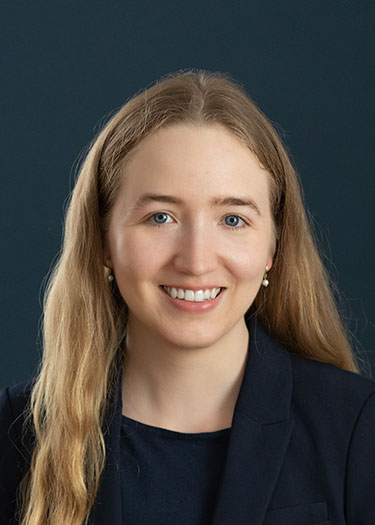
GRAND ROUNDS: S. Rebecca Stephen
"Medical Ethics and Moral Blind Spots in Nazi Germany"Thursday, November 21, 2024
4:30pm- 6:00pm
Location: Zoom (RSVP for link)
RSVP hereThis discussion will provide an overview of the role that physicians and scientists played in Nazi-era Germany. We will examine how medical practice and scientific inquiry were distorted to justify inhumane actions and the critical involvement of physicians in these atrocities. By examining several key examples, we will highlight the importance of maintaining vigilance against moral blind spots and how even well-intentioned professionals can become complicit in unethical practices.
This talk will also highlight the organization FASPE (Fellowships at Auschwitz for the Study of Professional Ethics), which brings together early professionals in medicine and several other fields to study ethical responsibility by analyzing the decisions and actions of Nazi-era professionals. Students interested in learning about FASPE's annual fully funded fellowship program to Germany and Poland are encouraged to attend.
Past events
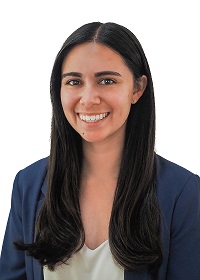
GRAND ROUNDS: Alexie Lessing
"Evidence-Based Integrative Medicine: Understanding the Impact of Exercise on CIPN in Breast Cancer Survivors"Thursday, November 14, 2024
4:30pm- 6:00pm
Location: Zoom (RSVP for link)
RSVP hereIntegrative medicine is a patient-centered, evidence-based field that utilizes lifestyle modifications, mind-body practices, and natural products, alongside conventional pharmacological and procedural interventions, to treat a variety of medical conditions. Chemotherapy-induced peripheral neuropathy (CIPN) is a common, and often debilitating, chronic side effect of neurotoxic chemotherapy. There are currently limited traditional treatment options for CIPN. In this Grand Rounds, we will review Lexie’s research examining the impact of exercise on CIPN symptom burden in breast cancer survivors. This research was conducted as part of her SCP with her advisor, Dr. Stephen Post, and Dr. Ting Bao at Memorial Sloan Kettering Cancer Center.
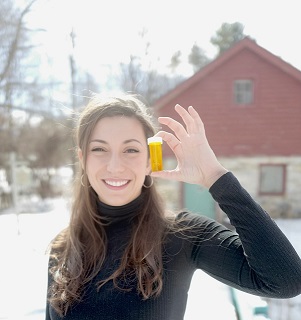
GRAND ROUNDS: Julia Hotz
"Social Prescriptions: The Future of Medicine"Thursday, November 7, 2024
4:30pm- 6:00pm
Location: Zoom (RSVP for link)
RSVP hereTraditionally, when we get sick, health care professionals ask, “What’s the matter with you?” But around the world, teams of doctors, nurses, therapists, and social workers have started to flip the script, asking “What matters to you?” Instead of solely pharmaceutical prescriptions, they offer “social prescriptions”—referrals to community activities and resources, like photography classes, gardening groups, and volunteering gigs.
The results speak for themselves. Science shows that social prescribing is effective for treating symptoms of the modern world’s most common ailments—depression, ADHD, addiction, trauma, anxiety, chronic pain, dementia, diabetes, and loneliness. As health care’s de facto cycle of “diagnose-treat-repeat” reaches a breaking point, social prescribing has also proven to reduce patient wait times, lower hospitalization rates, save money, and reverse health worker burnout. And as a general sense of unwellness plagues more of us, social prescriptions can help all of us feel healthier.
In this talk, Hotz will explore key insights from her new book, THE CONNECTION CURE, and explore the science behind why social prescribing is critical to the future of health and healthcare.
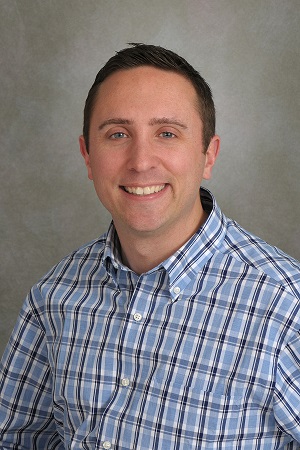
GRAND ROUNDS: Michael Attard, MA, CCLS
"Communicating with the Ill Child and Their Families: Lessons Learned from 20 years in Child Life"Thursday, October 17, 2024
4:30pm- 6:00pm
Location: Zoom (RSVP for link)
RSVP hereIn this presentation, Michael will delve into a number of considerations to take when communicating with hospitalized children and their families. Emphasis will be placed on the importance of building rapport and creating a space in which opportunities for self-expression are encouraged. Michael will touch on his delicate work as a Certified Child Life Specialist, where he often plays the role of truth teller. He’ll share the value of working as part of a team in the unique confines of a children’s hospital, while respecting the power of hope, grace, and dignity. He’ll also discuss the concept of family centered care in action.
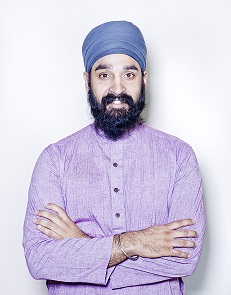
GRAND ROUNDS: Simran Jeet Singh, PhD
"The Light We Give: The Transformative Promise of Compassion"Thursday, October 10, 2024
4:30pm- 6:00pm
Location: Zoom (RSVP for link)
RSVP hereGrowing up in South Texas, Simran Jeet Singh and his brothers confronted racism daily. As a turbaned, bearded, brown-skinned Sikh, he continued to face prejudice and hate in college and beyond. Simran chose to be defined not by the negativity that often surrounded him but by the Sikh teachings of love and justice that he grew up with. Delving deep into these core tenets of Sikh wisdom, he has sought to embrace an outlook that guides us to see the good in everyone and to forge a path of positivity, connection, and service—a way of life that so many of us are seeking in today’s world.
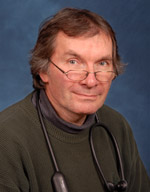
GRAND ROUNDS: Salvatore Mangione, MD
"When Disease Strikes the Leader: What Should We Know?"Thursday, September 26, 2024
4:30pm- 6:00pm
Location: Zoom (RSVP for link)
RSVP hereThe year 2024 marks the 100th anniversary of the death of President Wilson, whose 1919 stroke launched "the most serious case of presidential disability and medical cover-up in American history”. Hence, this anniversary provides us with a timely opportunity to revisit not only how undisclosed illnesses of political leaders impact on national policies, but also how they challenge physicians’ allegiance, both issues of great relevance to the medical community.
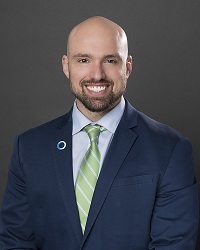
GRAND ROUNDS: Brian Papszycki, MA
"Overview of Medical Advancements in Organ, Eye and Tissue Donation and Ethical Implications"Thursday, September 19, 2024
4:30pm- 6:00pm
Location: Zoom (RSVP for link)
RSVP hereThe field of organ, eye and tissue donation is constantly progressing in terms of new and innovative medical advancements. This acceleration can provide more lifesaving gifts to those in need, but they also raise many questions from an ethical, legal and moral perspective. During this presentation, we will examine the newest lifesaving enhancements in the field of donation/transplantation and address the most pressing questions those advancements may raise.
Healthcare Under Attack: A Look Beyond Borders
Tuesday, May 7, 2024
5:00pm- 7:30pm
Location: MART Auditorium and Zoom
RSVP here
We encourage HSC faculty and students to attend in-personPlease join us in a discussion to:
- raise awareness about the ongoing attacks on healthcare systems globally
- combat misinformation and promote factual understanding of global healthcare crises
- highlight contemporary examples of attacks on healthcare systems, including but not limited to the humanitarian crises in East/Southeast Asia, the Carribbean, Gaza, East/Central Africa, and other global conflict zones
Moderators:
Raisa Karim, M1 (MD/PhD)
Dr. Stephen G. Post, PhD, Professor and Director, Center for Medical Humanities, Compassionate Care and Bioethics
Panelists:
Dr. April Castillo, MD, MPH, Assistant Professor, Family, Population and Preventive Medicine
Dr. Sana Malik, DrPH, MSW, MPH, Assistant Professor, School of Social Welfare
Dr. Fatima Daoud, MD, Clinical Assistant Professor, Obstetrics and Gynecology
Dr. Héctor Alcalá, PhD, MPH, Assistant Professor, Family, Population and Preventive Medicine, Program in Public Health
Dr. Amy Lasky, MD, Clinical Assistant Professor, Obstetrics and Gynecology
Taka Nah Jelah, M1
Julian Maceren, M2 (MD/PhD)
Tsering Yangchen, Co-President of Students for Free Tibet Boston
Adrien Canery, M1
Tenzin Seldoen Oshoe, M2
Event Collaborators: the Center for Medical Humanities, Compassionate Care and Bioethics and the students from RSOM chapters of: Physicians for Human Rights, American Medical Association, Discourse & Engagement on Ethics & Policy Society, Student National Medical Association, Latinx Medical Student Association, Black Men in White Coats, Medical Student Pride Alliance, South Asian Student Association, Asian Pacific American Medical Student Association, American Muslim Medical Student Association
We invite other SBU students and faculty to join us by Zoom. In the best traditions of professionalism and civil discourse, we expect all attendees to be respectful and mindful in conduct.
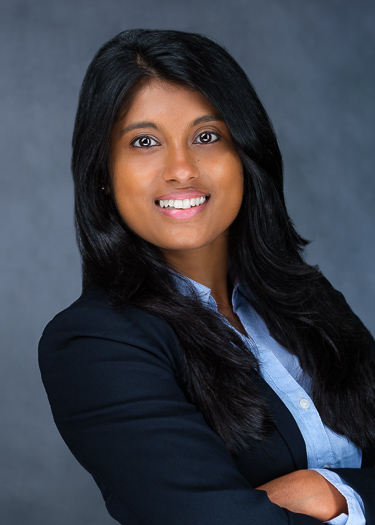
GRAND ROUNDS: Krisha Mehta, MD
"Cultivating Compassion in Medicine: A Toolkit for Medical Students to Improve Self-Kindness and Enhance Clinical Care"Tuesday, April 30, 2024
4:30pm- 5:30pm
Location: Zoom (RSVP for link)
RSVP hereRead full article here
Compassionate care lies at the foundation of good patient care and is a quality that patients and providers continue to value in contemporary medicine. It is a quality of being and doing that marks professional identity formation (PIF) as emphasized by the AAMC and AOA. Yet is a skill that is often not taught using a formal framework. Here at Stony Brook, we have formulated a course that is an 8-session based curriculum with a mindfulness-based approach to compassion that addresses this need in medical education. Additionally, we were able to show that students in our course developed an enhanced ability to engage in self-compassion, to understand the shared human experience, and to be motivated to act to alleviate suffering. Compassion can be taught using cognitive practices and constructive thinking, that can prime kindness, patience and prosocial attributes. Patients seek compassionate care; however, medical schools appear to struggle to teach future medical physicians how to nurture compassion. Our intervention, which could be easily adapted to existing curricula that involve discussions of medical humanities and could even be taught remotely, educates students on techniques to help them identify personal needs and connect them to shared needs that exist in humanity. In this Grand Rounds, we will review the science and art of compassion education and how it can be formalized into a curricular format to provide students with a “toolkit” to promote compassionate care.

GRAND ROUNDS: Salvatore Mangione, MD
"The Shroud of Turin: Medical and Scientific Evidence Behind the Burial Cloth and the Death of Jesus"Thursday, April 11, 2024
4:30pm- 6:00pm
Location: Zoom (RSVP for link)
RSVP hereThe Shroud of Turin is the alleged burial cloth of Jesus and one of the most studied artifacts in human history. Since its first historical appearance at the end of the 14th century it has baffled scientists, irritated skeptics and awed believers. Carbon dating from 1988 dated the linen to 1260-1390, yet recent evidence suggests that measurements were actually carried out on a medieval re-weave. In this talk, Dr. Mangione will review the medical and scientific evidence behind the linen, and what this evidence can tell us about the death of Jesus.
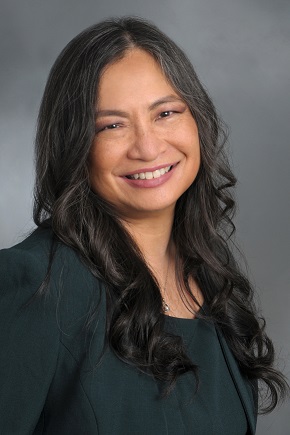
GRAND ROUNDS: Maria A. Basile, MD, MBA
"Advancing Health Equity: Why Narratives Matter"Thursday, March 28, 2024
4:30pm- 6:00pm
Location: Zoom (RSVP for link)
RSVP hereNarratives are embedded in the structure of the health care system, and in the ways in which we think about patients, families, communities and neighborhoods we serve—and even ourselves. Narratives shape what questions we ask in day to day care of our patients as well as what solutions we might consider or develop. They even shape our descriptions of patient encounters; what attributes of the person and the situation are emphasized in our case presentations.
How might we examine dominant narratives such as the narrative of race and the narrative of individualism/personal responsibility? Can we look at our current technology, workflows, conversations and policies and change narratives in such a way that allows for racial justice and health equity?
Shifting the dominant narrative about health equity may be a daunting task, but it is both possible and vital for the betterment of public health. Join Dr. Maria Basile in a discussion of the skills and sensitivities necessary for developing narrative transformation in our practices and in our lives.
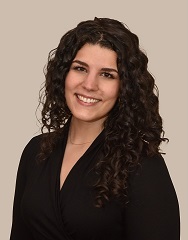
GRAND ROUNDS: Caitlyn Tabor, JD, MBE
"Bridging Borders: Discussions on Migrant Healthcare"Thursday, March 21, 2024
4:30pm- 6:00pm
Location: Zoom (RSVP for link)
RSVP hereThis presentation will delve into the multifaceted challenges faced by migrant populations in accessing medical care and explores innovative solutions, using the Boston immigrant medicine clinic as a model for improving healthcare access for migrants nationwide.
Objectives:
- To raise awareness about the challenges faced by migrant populations in accessing healthcare in the current immigration landscape.
- To showcase innovative approaches, such as the Boston immigrant medicine clinic, that address these challenges.
- To discuss the role of healthcare professionals in advocating for improved access to healthcare for migrants.
- To highlight the importance of cultural competency and interdisciplinary collaboration in providing healthcare to migrant populations.
- To inspire healthcare professionals to explore new ways of addressing the healthcare needs of migrants in their communities.
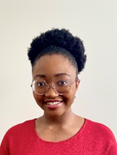
SPECIAL TOPICS: Alaba Danagogo
"WARP Module 1: Recognizing the individuality and shared humanity of people"Thursday, February 29, 2024
3:30pm- 5:30pm
Location: HSC, Level 2, 3AB
RSVP hereWriting Away Racism Project (WARP) presents the first creative writing workshop in our series, Module 1: Recognizing the individuality and shared humanity of people. Please join us if you’re interested in anti-racist activism, if you enjoy literature and creative writing, if you’re simply curious and eager to participate in a new experience, all are welcome!
WARP is a cultural change initiative created to cultivate the necessary soft skills and attitudes that are effective for unlearning racism. Using literature and directed creative writing activities, participants and facilitators engage with a sensitive topic like racism indirectly in a safe space that encourages both emotional and rational connections.
WARP workshops are designed to highlight an existing framework for being regularly anti-racist. The 7 modules encourage practice of the key skills for being anti-racist which include:
- recognize both the individuality and shared humanity of people
- educate self to accept denial of biases
- cultivate empathy
- have a questioning mind frame
- have the courage to sit with discomfort and perform allyship
- intend to be anti-racist and know why
- perform an anti-racist behavior or action.
Other workshop dates will be announced
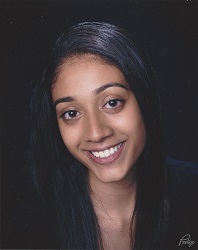
GRAND ROUNDS: Vincent de Luise, MD, FACS and Radhika Patel, BA
"Slow Looking: An Essential Skill in the Toolkit of Clinical Diagnosis and Caring"Thursday, February 22, 2024
4:30pm- 6:00pm
Location: Zoom (please RSVP for link)
RSVP hereThe rapid pace of medicine has led to difficulties for physicians and physicians-in-training to find the time and space to have impactful communications with their patients, from history-taking and diagnosis to discussions of care and treatment.
Through techniques of Slow Looking, time and space with patients can be optimized. Slow Looking and mindful observation of representational and non-representational Art is a skill set which can be learned, internalized and translated to the patient encounter, better to inform the physician and physician-in-training in their analysis, reflection, diagnosis and treatment.
To teach the skill of Slow Looking, Radhika Patel will present a rubric for deep visual analysis of portraiture. This rubric provides a logical process by which to approach observing a portrait in order to fully understand it. The goal of this exercise is to develop a way of seeing that can be transferred to the observation of a patient's signs in the setting of clinical diagnosis.
Slow Looking improves empathy and compassion in the patient-physician care journey.
Objective:
To learn a set of observation techniques in viewing representational Art and non-representational Art which can be transferred into the toolkit of clinical examination of the patient for diagnostic decision-making and treatment.
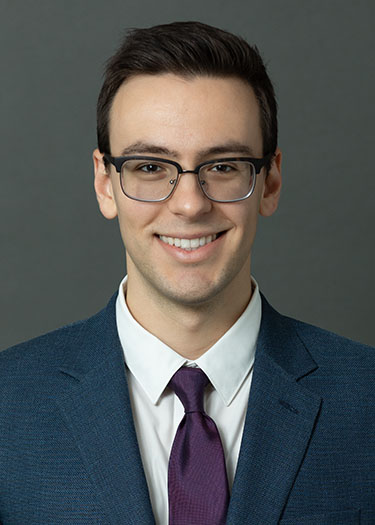
SPECIAL TOPICS: Brandon Muncan
"Unmasking the Invisible: Rethinking Drug Use Stigma and Spoiled Identity in Medicine"Tuesday, February 20, 2024
3:30pm- 5:00pm
Location: HSC, Level 3, Lecture Hall 6
RSVP hereThis presentation explores the pervasive impact of drug use stigma on healthcare and individuals who use drugs, framing stigma as a "spoiled identity." Our primary objectives are threefold: to reveal the mechanisms by which stigma operates in healthcare settings, to elucidate its adverse effects on healthcare access and quality, and to provide actionable strategies for clinicians to deliver equitable and compassionate care, ultimately helping patients reclaim their dignity within the healthcare system.

GRAND ROUNDS- Salvatore Mangione, MD
"Remembering the White Rose: How 6 Medical Students Took on Hitler"Thursday, January 18, 2024
4:30pm- 6:00pm
Location: Zoom (please RSVP for link)
RSVP hereFebruary 2023 marked the 80th anniversary of the murdering of ‘White Rose’ resisters to Hitler – a clandestine group of idealistic Munich students that between 1942 and 1943 tried to stir-up German rebellion by increasing awareness of Nazi atrocities. Leaders were caught while distributing leaflets, put on show trials, and sent to the guillotine. Yet what is relevant for today’s physicians is that this tiny band of cultured and decent humanists was almost entirely made of medical students – but students who had an expansive view of what it means being a doctor. As they wrote in one of their leaflets, “We will not be silent.” As we honor these students’ memory and moral need to act, we should remember that we too have social responsibilities. There are many issues today’s medicine needs the civil courage to be vocal about, such as inequalities of care, gun control and social determinants of disease. Yet, the main existential threat of our age comes not from a murderous tyrant, but from a warming planet – a self-inflicted “catastrophe of unimagined magnitude”. With time rapidly fading, and physicians remaining disturbingly silent, “climate action is not a luxury but a must”. Should we then heed the White Rose call and speak up? As one of the ‘White Rose’ students told her cellmate just before being executed: “How can we expect righteousness to prevail when there is hardly anyone willing to give himself up individually to a righteous cause?”.
- 2023
Past events
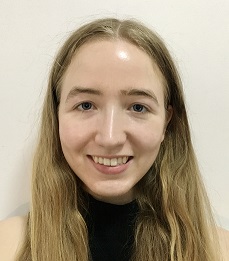
SPECIAL TOPICS- S. Rebecca Stephen
"Food (and Water) for Thought: Language Variations in the Description of Life-Sustaining Nutrition and Hydration"Tuesday, December 12, 2023
3:30pm- 5:00pm
Location: HSC, Level 3, Lecture Hall 6
RSVP hereA POLST (Physician Orders for Life-Sustaining Treatment) form is a medical document that outlines a terminally ill patient’s end-of-life treatment preferences. Although the POLST program is national, each state has its own form that may include whether a patient would like interventions such as CPR, dialysis, antibiotics, and feeding tubes.
Objectives:
- The language describing nutrition and hydration interventions varies across state POLST forms and is often vague, nonspecific, and inconsistent.
- This language does not sufficiently convey the complexity of feeding tubes and lack of long-term benefit for usage in advanced dementia patients
- Insufficiently specific language to describe end-of-life nutrition and hydration interventions may impact how dementia patients and their families make medical decisions
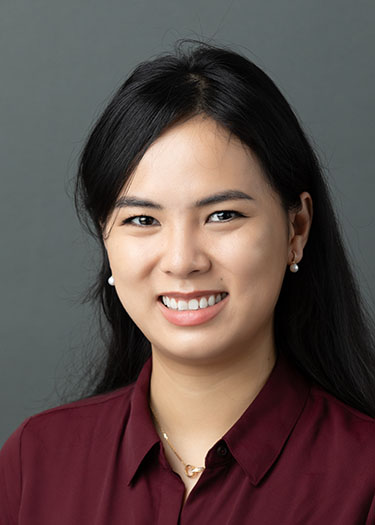
SPECIAL TOPICS- Cassie Wang
"Redefining hospital architectural design through the lens of social spaces"Tuesday, November 28, 2023
3:30pm- 5:00pm
Location: Zoom (please RSVP for link)
RSVP hereCassie is interested in the ways in which the physical space can influence people’s behaviors and experiences. This originally manifested in her college senior thesis “Paris the Prism: Illumination in the City of Light” and has now evolved into her scholarly concentrations project "Redefining hospital architectural design through the lens of social spaces." She hopes her work can lead to the thoughtful design of hospitals as an important part of patient centered care. In this special topic's presentation, she will be delving into both her project and also how she came to take her educational background in her clinical practice.

GRAND ROUNDS- Maria Basile, MD, MBA
"Vital Signs: A Nationwide Campaign to Prevent Physician Suicide"Thursday, November 16, 2023
4:30pm- 6:00pm
Location: Zoom (please RSVP for link)
RSVP herePhysicians have one of the highest suicide rates of any profession. Likely underreported and difficult to study from publicly available data, the best estimates are that 300-400 physicians, residents and medical students take their own lives each year. More than half of physicians know a physician who has either considered, attempted or died by suicide in their career.
Despite increased attention to physician and health care workers’ well-being prompted by the COVID 19 pandemic, physicians, medical students and residents continue to face stress, depression, and other mental health concerns in a culture that stigmatizes reaching out for help.
There is a nationwide, collaborative effort to increase awareness of the struggles of physicians in crisis. Please join Dr. Maria Basile as she reviews SEVEN ways physicians, their loved ones, their colleagues, health organizations and others can take action:
- Learn the Vital Signs
- Encourage mental health reflection
- Share suicide prevention resources
- Prepare before a moment of crisis
- Check in with a physician
- Remove intrusive mental health questions
- Create a culture of wellbeing
This presentation is for the purposes of spreading awareness of this issue.
If you, or someone you know is struggling or in crisis, call or text 988 or chat 988lifeline.org
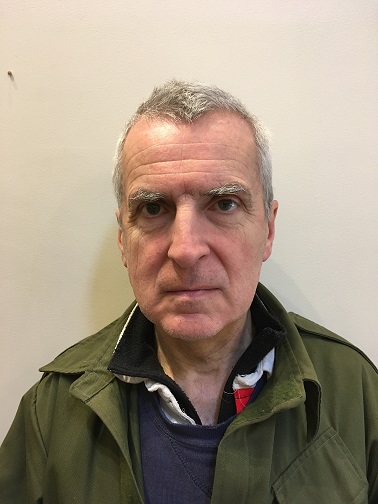
GRAND ROUNDS- Julian C. Hughes
"An approach to ethics and persons with dementia"Thursday, October 26, 2023
4:00pm- 5:30pm
Location: Zoom (please RSVP for link)
RSVP hereThis talk is about ethics and dementia. I shall, first, outline an approach to thinking about ethical issues in dementia (and more broadly too). This relies on the notion of patterns of practice, which I shall explain. I shall use patterns of practice to elucidate certain dilemmas that people face in the context of dementia. Secondly, I shall emphasize the importance of how we think about people who live with a diagnosis of dementia. I wish to characterize persons (with or without dementia) as situated embodied agents. I’ve called this the SEA view of personhood. I hope to show how this view of people with dementia impinges on particular topics that arise in dementia care.
In collaboration with the Department of Psychiatry and Behavioral Health
GRAND ROUNDS- Alan Steinberg, MD, MA
"Medicine in the Holocaust: How and Why Doctors Went Wrong"Tuesday, October 24, 2023
11:00am- 12:15pm
Location: Zoom (see flyer for link)Objectives:
- Learn the history of eugenics and racial hygiene, which culminated in the Nazi era.
- Gain knowledge about the role of physicians—who gravitated in larger numbers than any other profession to the Nazi Party of the 1920’s—in coining “eugenic phrases” used to justify medical killing, including “life unworthy of life” and “useless eaters.”
- Consider what we have learned about human nature.
- Discuss how the Holocaust is still relevant to medical education as an historical context, and why we need to be aware of it.
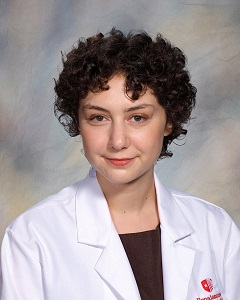
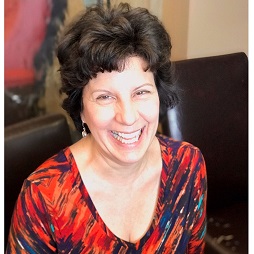
GRAND ROUNDS- Monica Raiss & Joni Marra, Esq., CH
"The D Words: A Conversation about Death, Dying and Doulas"Thursday, October 19, 2023
4:30pm- 6:00pm
Location: Zoom (please RSVP for link)
RSVP hereImagine that as a physician, you enter the exam room and deliver the news to your patient: the test results confirm a terminal diagnosis. Your patient may receive the news with life-altering fear for the death and dying process.
Now, imagine that you are the end-of-life patient. Fear, anger, guilt or shame may flood what you think, feel, say, and do. Studies have shown that the top two fears of end-of-life patients are the fear of 1) pain and 2) being a burden to others.
Critical, time-sensitive decisions await you. Will you continue medical treatment, remain at home, enter hospice? Will you engage a Death Doula? What exactly is a Death Doula?
Join us to explore:
- Understanding the role of a Death Doula
- Facing a fear of death and embracing the end-of-life journey
- Giving the gift of preparation to self and loved ones (physically, emotionally, spiritually, legally)
- Navigating the dying process of Shock, Stabilization and Transition
- Exploring what to do and not do when accompanying the dying
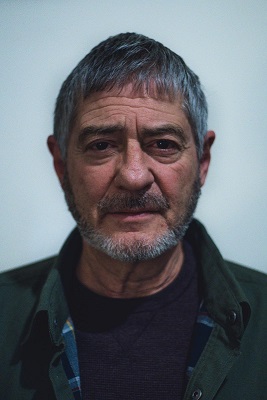
GRAND ROUNDS- Jeffrey Trilling, MD
"The Circle of Change- Skillful conversations for Impasse Resolution/A reading with commentary"Thursday, September 28, 2023
4:30pm- 6:00pm
Location: Zoom (please RSVP for link)
RSVP hereThe Circle of Change argues that there is important hidden knowledge to explain patient conflict, impasse, resistance to plan of care and lifestyle changes beyond technology’s reach that can only be gained through trust and rapport—and asking the right questions. While physicians, physician assistants, nurse practitioners, and others are trained to take inventory of the body’s biological systems, practitioners often lack the skill set to ask the right questions to explore personal, family, and cultural systems. And therein lies the pedagogic vaccum to be filled. It is this text’s purpose to introduce a systems-based problem-solving approach, The Circle of Change, as map and compass for harvesting and processing patients’ narratives to uncover meaning and care for the illness.

GRAND ROUNDS- Salvatore Mangione, MD
"The Five Books that Changed Medicine"Thursday, September 21, 2023
4:30pm- 6:00pm
Location: Zoom (please RSVP for link)
RSVP hereThis 1-hour presentation will revisit our professional identity, a crucial issue in times when physicians seem to have been increasingly debased to mere technicians -- or even worse ‘providers of medical services’, with patients in turn reduced to ‘consumers’. Hence, this talk will revisit the 5 books that gave us our professional identity, the first three of which are actually linked to the old medical school of Padua: Vesalius' Fabrica, Harvey' De Motu Cordis, Morgagni's De Sedibus, Laennec's Auscultation Médiate and Virchow's Cell Pathology. These 5 books not only provided us with anatomy, physiology, pathophysiology, physical exam, and pathology – i.e. the foundations of the first three years of medical education in Europe -- but also taught us skepticism, the scientific method, clinico-pathologic correlation, bedside diagnosis, and the need to always challenge authority and remain both culturally eclectic and socially active.

SPECIAL TOPICS- Maria Basile, MD, MBA
"Medical Economics: How Greed Corrupts US Health Care"Tuesday, May 16, 2023
3:30pm- 5:00pm
Location: HSC, Level 3, FPPM Conference rooms 066 & 067 and via Zoom
RSVP hereIn his trending JAMA opinion piece, Salve Lucrum: The Existential Threat of Greed in US Health Care1, Dr Donald Berwick states:
“No sector of US health care is immune from the immoderate pursuit of profit, neither drug companies, nor insurers, nor hospitals, nor investors, nor physician practices.”
But how did we get here, and how can we fix it? Join Dr Maria Basile as she reviews the four principal elements that have historically been pillars of the US health care industry (Reimbursement, Regulation, Competition, and Technology). She’ll describe how avarice, manipulation and profiteering create higher costs, concentration of wealth and political power which then block any constraints on greed. Finally, she’ll propose some solutions and tactics to identify and address greed in US health care.
1Salve Lucrum: The Existential Threat of Greed in US Health Care JAMA. 2023;329(8):629-630. doi:10.1001/jama.2023.0846
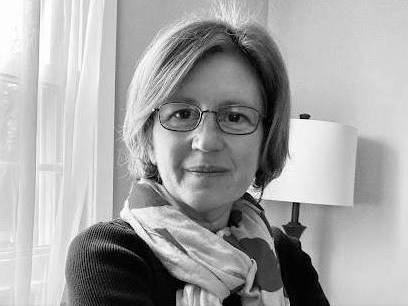
GRAND ROUNDS- Carmen Bugan, PhD
"For the Time Being"View link to read the poem
Poetic Expressions of Illness and the Changed Sense of TimeThursday, May 11, 2023
4:30pm- 6:00pm
Location: Zoom
RSVP hereLanguage and experience are in constant conversation. Experience prompts us to look for the right words that help us process changes in our lives. Thus, we enter a journey in language that, in turn, affects our experience. Language is the way we maintain equilibrium between the inner self and the outer world.
In this talk I explore the altered perception of time that we experience during illness. Creative writing is a process that fuses language and experience in a unique way: it literally “makes” language. The expressive qualities of lyric language are “transporting”: they allow both the writer and reader to traverse turbulent time by providing images and associations that speak to the universal human experience, thereby easing the weight of personal grief into a communal sense of shared consolation. I use poetry as a particular vehicle of language, and I explore poetic expressions that absorb and attempt to make sense of the notion of time, and of the evolving self in time.
Read "For the Time Being" poem here
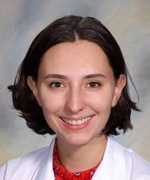
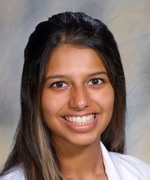
GRAND ROUNDS- Allison Dammann and Ashna Raiker
"Autism in Dance"Thursday, April 13, 2023
5:00pm- 6:00pm
Location: Zoom- Please RSVP for link
RSVP hereStony Brook’s Autism in Dance Initiative is a medical student-led community initiative that uses the power of dance to engage adults with Autism Spectrum Disorder (ASD) and other developmental disabilities in the local community. We utilize dance and movement as tools to encourage self-expression, empathy, and connection within and between our dancers. The Autism in Dance Initiative provides a space for creativity and expression that is therapeutic for both community members and medical students. It leaves a lasting impression through creating rewarding relationships that last long after the music ends.
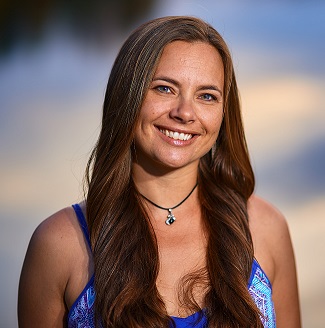
GRAND ROUNDS- Sarah Greco, MA, C-IAYT, E-RYT 500, YACEP
"Exercise for the Embodied Ethic: kriya yoga for the development and sustenance of virtue"Thursday, March 30, 2023
4:30pm- 6:00pm
Location: Zoom- Please RSVP for link
RSVP hereWouldn’t you agree that being a good person is better when you reside steadily in a ‘felt sense’ of knowing that you ARE good, and that you’ve done the right things.
You practice being a good person and doing the right thing, especially as a professional. The 4 Medical Principles help to guide and validate your choices and experiences, which are informed by a pre-reflective embodied ethic, or ethical second nature. Immersed from birth into a world of right and wrong, good and bad, moral and ethical interactions have profound impact on your well-being. Moral and ethical successes can create a “peace of mind,” while being involved, even as a witness, to an unethical action can disrupt rest and “keep you up at night.”
If there was a practice to strengthen, refine and further develop your embodied ethic or ethical second nature, would you do it?
Thousands of years ago, Indian sages were aware that moral and ethical training served as a foundation to the deeper work of meditation that achieved liberation from suffering. Patanjali’s Yoga Sutras describes a practice of kriya yoga (union with action) – an activity that can help to attenuate corruption. By means of tapas (heat, discipline), svadhyaya (textual and self study) and Isvara pranidhana (aspiration toward a moral ideal), practitioners engage physical and mental activities informed by the 5 restraints or Yama. They are non-harm/ahimsa, truthfulness/satya, non-stealing/asteya, temperance/brahmacharya, and non-coveting/aparigraha. The practice of kriya yoga supports a person becoming more authentically compassionate, honest, respectful, conscientious, and generous – 5 virtuous qualities.
How does Yoga provide an exercise for the embodied ethic and support the development and sustenance of virtue?
Come to experientially explore to the possibility yourself!
During this session, you will be invited to participate (or observe) the yoga and meditation practice and share your observations, insights and awareness. No prior yoga or meditation experience is necessary. Movement and positions are adaptable to whatever you are wearing and wherever you are. Your experience will be enhanced if you can be somewhere private and quiet.
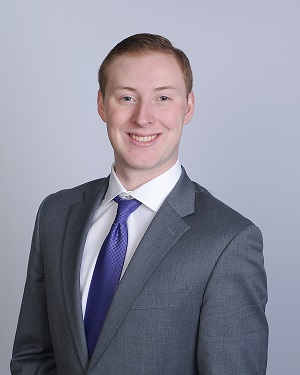
GRAND ROUNDS- Liam Butchart, MD, MA
"Narrative Medicine Theory and Practice: The Double Helix Model"Thursday, March 23, 2023
4:30pm- 6:00pm
Location: Zoom- Please RSVP for link
RSVP hereThe genesis of the medical humanities as an academic discipline engendered a need for a theoretical framework, which narrative medicine provided. Now, it is one of the most significant domains of thought within the medical humanities. This talk traces the development of narrative medicine, particularly through the Columbia School initially led by Rita Charon, and critically examines its implicit goals and theoretical assumptions as they have changed over time. A new approach to narratological medicine, the double helix model, is outlined and placed in dialogue with the Columbia School’s version of narrative medicine, with the goal of improving narrative medicine theory and practice.
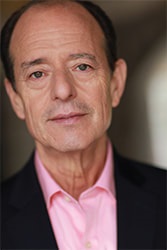
GRAND ROUNDS- Samuel A. Simon
"Dementia Man: An Existential Journey"Thursday, March 2, 2023
4:30pm- 6:00pm
Location: Zoom- Please RSVP for link
RSVP hereSamuel A (Sam) Simon’s distinguished career is exemplary by any standards as a writer, TV personality, and disability activist. In 2018 Sam was diagnosed with MCI (Mild Cognitive Impairment), which lies between significant but normal age-related forgetfulness and a diagnosis of dementia. In 2021 Sam was diagnosed with early Alzheimer’s disease. Always highly creative, resilient, and determined, Sam began writing a new play, Dementia Man, An Existential Journey, which was showcased in January of 2023 in New York at the highly selective Association of Performing Arts Professional Conference. One of Sam’s most important goals is to change the narrative around cognitive impairment and its underlying causes such as Alzheimer’s, Parkinson’s, and Lewy Body.
In this presentation, Sam will read aloud a 15-minute excerpt from his play, followed by a five-minute commentary from Stony Brook Medical School’s physician-poet Dr. Maria Basile MD, President of the Suffolk Academy of Medicine and Vice Speaker for the Medical Society of the State of New York.
Part Two: An Ethical and Spiritual Dialogue on the Challenges of Alzheimer Disease with Questions for Sam A. Simon from Stephen G. Post, author of “Dignity for Deeply Forgetful People” (Hopkins 2022) followed by Q & A from our audience:
- How did you experience your diagnosis and do you have any recommendations for aspiring neurologists and other physicians as they learn to communicate with patients such as yourself?
- What do you think of the word “dementia”?
- What is the right balance between freedom and safety?
- Where do you find hope? Where does your wife find hope?
- Are you on a drug study now? Why?
- What is unique about the dementia alliance? How is a “care partner” different from a “caregiver”?
- What does it mean to be treated with dignity as a person with dementia?
- Do you worry about being overtreated?
- Do you ever think that a person with dementia is “gone,” or “vanished”?
- What are your thoughts on pre-emptive assisted suicide as a response to the diagnosis of dementia?
- What do you think of Amy Bloom’s memoir, In Love, about her husband’s trip to end his life through legal suicide at Dignitas in Switzerland?
- Do we place too much value in linear rationality? Do “hypercognitive values” bias us against the people with dementia?
- Do you enjoy nature? Your dog Sparky? Music? Beautiful art? Poetry?
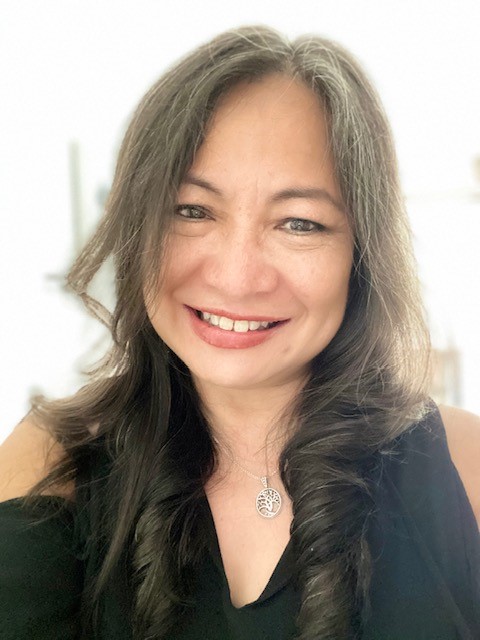
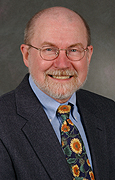
SPECIAL TOPICS- Maria Basile, MD, MBA, Jack Coulehan, MD, & Richard Bronson, MD
Why Doctors (at Stony Brook) WriteTuesday, February 21, 2023
3:30pm- 5:00pm
Location: HSC, Level 3, FPPM Conf. Rooms 066 & 067
RSVP hereWhy Doctors Write: Finding Humanity in Medicine explores the impact of writing, the arts, and the humanities on medical practice. In an age of technology, physician burnout, and depersonalized patient care, clinicians have turned to these tools to care for themselves and colleagues, and to renew their connection to patients. Why Doctors Write features a few of the practitioners who have pioneered ways to use reflective writing to recognize, accept, investigate, and nurture the most human aspects of medical care.
In this session you will attend a screening of the full-length (35 min) documentary, Why Doctors Write, with Dr Coulehan, Dr Bronson, and Dr Basile. Following the screening, they will facilitate a Q&A discussion of the video, highlighting programs that we have here at Stony Brook that encourage creative writing as a reflective practice important to the professional identity formation and wellbeing of physicians.
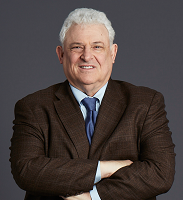
GRAND ROUNDS- Arthur Caplan, PhD
"Reproductive Ethics in a post Dobbs era"Tuesday, February 7, 2023
4:00pm- 5:00pm
Location: Zoom- Please RSVP for link
RSVP hereThe Dobbs decision removing the constitutional right to abortion up to the point of fetal viability raises huge questions for women, doctors, and administrators. The implications for this change in the law nationally will be explored for training, patient management, research, duties to women patients, access to reproductive services, conscientious objection and infertility treatments. Ample time will be set aside for Q & A.
This Grand Rounds and Q & A will be introducted and moderated by Dr. Phyllis Migdal, MD, MA.
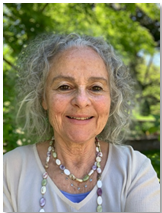
GRAND ROUNDS- Nadya Dimitrov, DPM, PA-C, DFAAPA
"Finding the Whole in the Care of the Patient"Thursday, January 19, 2023
4:30pm- 6:00pm
Location: Zoom- Please RSVP for link
RSVP hereAn altruistic calling and compassionate listening are qualities that have long been considered part of the healthcare professional’s credentials. Compassionate listening has deep roots in the spiritual realm, the realm of meaning. Healthcare professionals often turn to other specialists to navigate this realm. However there is an inherent resilience at the core of our engagement as healers. How do we capture the essence of trust in the relationship with the patient? In a time when the broken parts of the healthcare system are glaringly evident, what constitutes the whole care of the patient?
We will look at the ways in which the therapeutic relationship between patient and healthcare professional exemplifies the ‘palliative response’. Incorporation of its core concepts of spirituality into the toolkit of healthcare delivery can enhance both parties in the relationship and enhance patient outcomes.
- 2022
Past events

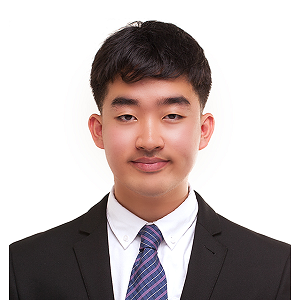
SPECIAL TOPICS- Maria Basile, MD, MBA & Il Hyun (Ted) Kim, MD/MA Candidate 2025
"Designing against physician burnout, a Design Thinking Workshop"Tuesday, December 13, 2022
3:30pm- 5:00pm
Location: HSC, Level 3, Room 066 & 067 (PLEASE NOTE ROOM CHANGE)
RSVP herePhysician burnout can take place as early as 3rd year in medical school. Consequently, students start showing a decreased sense of empathy. Early intervention in medical education is necessary to prevent this trend and teach future physicians to practice compassionate care.
In the field of design, products and services are created by prioritizing on opinions and perspectives of their end users. Designers start the development process by listening to and empathizing with those they serve first and generate a series of prototypes based on end-user feedback. This methodology is known as design thinking, which can be used to help healthcare workers intentionally practice perspective-taking and better understand patient illness experience.
Please join Dr. Maria Basile and 2nd-year med-student, Il Hyun (Ted) Kim, as they show how applying design thinking in medical education and healthcare settings could be helpful in combatting physician burnout.
View flyer here
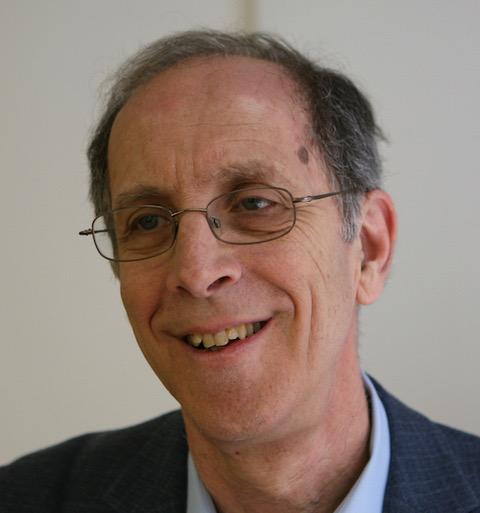
GRAND ROUNDS- Dan Cohen, MSW
"Embedding Music in Care"Thursday, December 1, 2022
4:30pm- 6:00pm
Location: Zoom- Please RSVP for link
RSVP hereUnder-utilized as a calming, enlivening medium, it turns out that the right music does more than reduce anxiety and depression. It also reduces falls, the perception of pain, delirium, brain fog and the need for antipsychotics.
Where does music fit into care for the deeply forgetful as well as those with Parkinson’s, and Huntington’s? How do we find music for those who cannot articulate their preferences? Why should healthcare care about embedding music? How are hospitals using music today? What does the research reflect?
Healthcare is always on the lookout for better interventions. A large and growing body of research adds to our confidence that music used in the right way can generate quality of life and quality of care outcomes that medications cannot. Medical professionals open to appropriate music-based interventions often gain a valued tool.
We will look at music’s impact during the progression of the disease as well as how music as medicine enhances patient outcomes and satisfaction.
View flyer here

SPECIAL TOPICS- Maria Basile, MD, MBA
"In Defense of Medical Truants- Poetry, Humanities, and the Legacy of Edmund D. Pellegrino, MD"Tuesday, November 29, 2022
3:30pm- 5:00pm
Location: HSC, Level 3, Lecture Hall 6
RSVP here5 years before his death in 2013, founding vice president of Stony Brook’s Health Science Centers, Dr. Edmund Pellegrino, referred to himself as a “Medical Truant.” Join Dr. Maria Basile to discover what he and others meant by this term and how you, in your own way, have been a truant from Medicine. In the interactive session that follows her presentation, we’ll explore the answer to these meaningful questions, and more:
- Why Teach the Humanities at All?
- Why Teach the Humanities in Medical School?
- How Should the Liberal Arts be Taught? By Whom?
- How Do the Humanities Make Physicians and Patient Care Better?
Students and faculty from any of the Health Science Schools are welcome to attend and participate in this thought-provoking session.
View flyer here
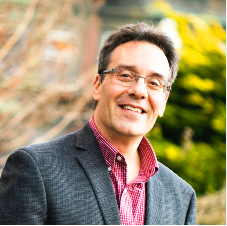
GRAND ROUNDS- Matthew T. Lee, PhD
"Flourishing as the Goal of Compassionate Healthcare?"Thursday, November 17, 2022
4:30pm- 6:00pm
Location: Zoom- Please RSVP for link
RSVP hereInterest in enhancing compassion in healthcare is growing, for patients as well as healthcare workers. As a result, we have learned much about how to respond to the multifaceted nature of suffering in its physical, psychological, social, and spiritual forms, and its relation to disengagement and burnout among physicians, nurses, and others in the healing professions. What if we pushed beyond the reduction of suffering and leaned more towards full flourishing as the goal of compassionate healthcare? This presentation explores how we might organize healthcare differently in order to create a social architecture that encourages more complete forms of well-being for everyone in the healthcare sector. We will discuss the integration of practical tools that support this transition, including new empirical measures of individual and community flourishing, caring climate, and compassion climate.
View flyer here
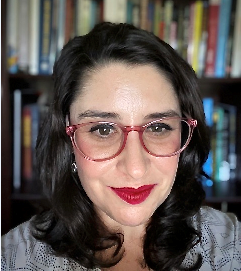
GRAND ROUNDS- Suzan Walters, PhD
"Intersectional Stigma Experiences Among People Who Inject Drugs: A Case Study of Pre-Exposure Prophylaxis for HIV Prevention Inequities"Thursday, November 3, 2022
4:30pm- 6:00pm
Location: Zoom- Please RSVP for link
RSVP herePeople who inject drugs are disproportionately impacted by several health conditions, including HIV. Stigma (i.e., social devaluation and discrediting) related to drug use is a significant barrier to pre-exposure prophylaxis (PrEP) for HIV prevention among persons who inject drugs. Stigma translates into negative healthcare interactions and healthcare avoidance. Dr. Walters will draw upon multiple studies to demonstrate stigma experiences among persons who inject drugs living in rural and urban settings and how these experiences create barriers to healthcare. She will then present data on healthcare experiences at syringe service programs concluding that new care models should be developed to address healthcare gaps and inequities experienced by people who inject drugs.
View flyer here


Special Topics- Alaba Danagogo and Dr. Maria Basile
"Creative Writing Workshops to Promote Anti-racist Behavior"Tuesday, October 25, 2022
3:30pm- 5:00pm
Location: HSC, Level 2, Classroom 2-1A
RSVP hereHow do we deploy all we’ve learned in medical school to confront divisive and destructive work environments? Can we use creative writing to shed light and spirit onto the dark moments and behaviors of our colleagues, staff and patients?
Please join Dr Maria Basile and 2nd year med-student, Alaba Danagogo, as they provide examples of this approach from medical schools and other healthcare settings. Even if you know you’re not racist, even if you hate that people call you “woke,” even if you don’t consider yourself creative (or a writer), there’s much to learn and discuss, and a way forward for all of us to change the culture in our communities of practice, maybe even in the world!
View flyer here

GRAND ROUNDS- Arthur Caplan, PhD
"Warp Speed, the Right to Try, Real World Evidence and the Future of the Ethics of Clinical Research"Thursday, October 20, 2022
4:30pm- 6:00pm
Location: Zoom- Please RSVP for link
RSVP hereAfter witnessing extraordinary scientific and regulatory efforts to speed development of and access to new COVID-19 interventions, patients facing other serious diseases have begun to ask “where’s our Operation Warp Speed?” and “why isn’t Emergency Use Authorization an option for our health crises?” Although this pandemic bears a number of unique features, the response to COVID-19 offers translatable lessons, in both its successes and failures, for non-pandemic diseases. These include the importance of collaborating across sectors, supporting the highest-priority research efforts, adopting rigorous and innovative trail designs, and sharing reliable information quickly. But, the regulatory response to the pandemic demonstrates that lowering standards for marketing authorization can result in increased safety concerns, missed opportunities for research and treatment and risky delays in determining what works.
View flyer here

GRAND ROUNDS- Stephen G. Post, PhD
"Dignity for Deeply Forgetful People"Thursday, September 29, 2022
4:30pm- 6:00pm
Location: Zoom- Please RSVP for link
RSVP hereHow can we approach a "deeply forgetful" person so as to notice and affirm their worth and dignity? How can we overcome the influence of "hypercognitive" values, with their emphasis on human worth as a matter of linear rationality? Is symbolic rationality actually both more important and enduring? Deeply forgetful people will often identify with a meaningful symbolic object even in the end stages, still somehow sensing that their identity is connected with a doll they clutch or a cowboy hat they wear. Is “dementia” itself a word that invites negative metaphors, like “husk,” “shell,” and “gone”? Post’s phrase “paradoxical lucidity” stresses the surprising moments of relative lucidity as reported by most caregivers, usually stimulated by music, art, nature, smell, and even a dementia dog. He will address the problems that deeply forgetful people sometimes face in avoiding the intensive care unit and hospitalization in favor of hospice care. He will address pre-emptive assisted suicide in Europe and Canada with caution, based on his direct observations. Post shares impressive strategies for better communication with deeply forgetful people, and advocates for a nationally supported caregiver respite program.
View flyer here
Humanising Medical Practices
Indigenous, Interdependent and Cross-Cultural InsightsOnline International Symposium
July 28- 29, 2022To register: Write to <NIASCONSCIOUSNESSPROGRAMME@NIAS.RES.IN>
View flyer here
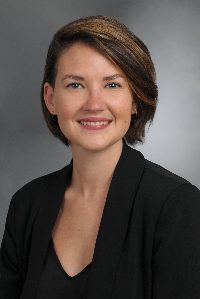
GRAND ROUNDS- Clare Whitney, PhD, MBE, RN
"Mediation & Ethical Case Resolution"Thursday, April 28, 2022
4:30pm- 6:00pm
Location: Zoom- Please RSVP for link
RSVP hereThe mediation model is a highly effective approach to ethical case resolution, ethics consultation, and clinical conflict management. This model is based on principles of negotiation and applied to the clinical setting through formal and informal third-party-facilitated conversations. Three pillars of mediation – neutrality, empathy, and creativity – allow a mediator to approach clinical conflict with a toolkit that enables them to resolve issues rooted in miscommunication or ethical tensions. In this presentation, we will discuss the basics of the mediation model, including the importance of giving effective apologies, using diagnostic listening skills, and taking inventory of conflicting parties’ positions and interests. We will also discuss how clinicians and patient-advocates can apply the principles, pillars, and tools of mediations, to achieve mutually acceptable resolutions to instances of clinical conflict.
View flyer here
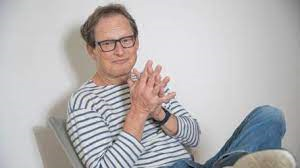
GRAND ROUNDS- Atay Citron, PhD
"Performance as Research: My Work with the Deaf Actors of the Ebisu Sign Language Theatre Laboratory"Thursday, April 7, 2022
4:30pm- 6:00pm
Location: Zoom- Please RSVP for link
RSVP hereEbisu Sign Language Theatre Laboratory was formed in 2014 as part of the GRAMBY (Grammar of the Body) research project that investigated compositionality in sign language (gramby.haifa.ac.il). The lab is an ensemble of 8 performer-researchers – 7 deaf and 1 hearing – all using Israeli Sign Language (ISL) for everyday communication. Employing performance-as-research methods, they study their own language to explore its poetic and performative potential. The exploratory improvisations combine ISL with gestures and physical theatre in order to create performances that are accessible to the deaf and hearing alike (we do not use simultaneous interpreting). Ebisu ensemble has created 3 original performances so far (the first, It’s Not About Ebisu, played at SBU in 2016), and will begin work on its 4th piece next year. In this presentation, I will discuss Deaf culture, the creative dialog of a hearing director with deaf actors, and the Letthe Body Lead the Mind method, which I developed with the actors.
View flyer here


GRAND ROUNDS- Maria Basile, MD, MBA & Jack Coulehan, MD
"Why Doctors Write"Thursday, March 10, 2022
4:30pm- 6:00pm
Location: HSC, Level 2, Lecture Hall 3
RSVP hereWhy Doctors Write: Finding Humanity in Medicine explores the impact of writing, the arts, and the humanities on medical practice. In an age of technology, physician burnout, and depersonalized patient care, clinicians have turned to these tools to care for themselves and colleagues, and to renew their connection to patients. Why Doctors Write features a few of the practitioners who have pioneered ways to use reflective writing to recognize, accept, investigate, and nurture the most human aspects of medical care.
In this Grand Rounds you will attend a screening of the full-length (35 min) documentary, Why Doctors Write, with Dr Coulehan, Dr Basile, and other faculty from the Center for Medical Humanities, Compassionate Care, and Bioethics. Following the screening, Drs Basile and Coulehan will facilitate a Q&A discussion of the video.
View flyer here
"Faith, Health and Wellness"
Panel Discussion and Q&A
Guest Speaker: Stephen G. Post, PhDWednesday, March 9, 2022
6:00pm
Location: SAC Auditorium or Zoom (see flyer for details)Explore a journey into your spirituality and well-being and learn how to lead a happier and healthier life
Hosted by the Interfaith Center and the Center for Prevention and Outreach, with support from the Division of Student Affairs, in collaboration with The Abraham's Table of Long Island
View flyer here
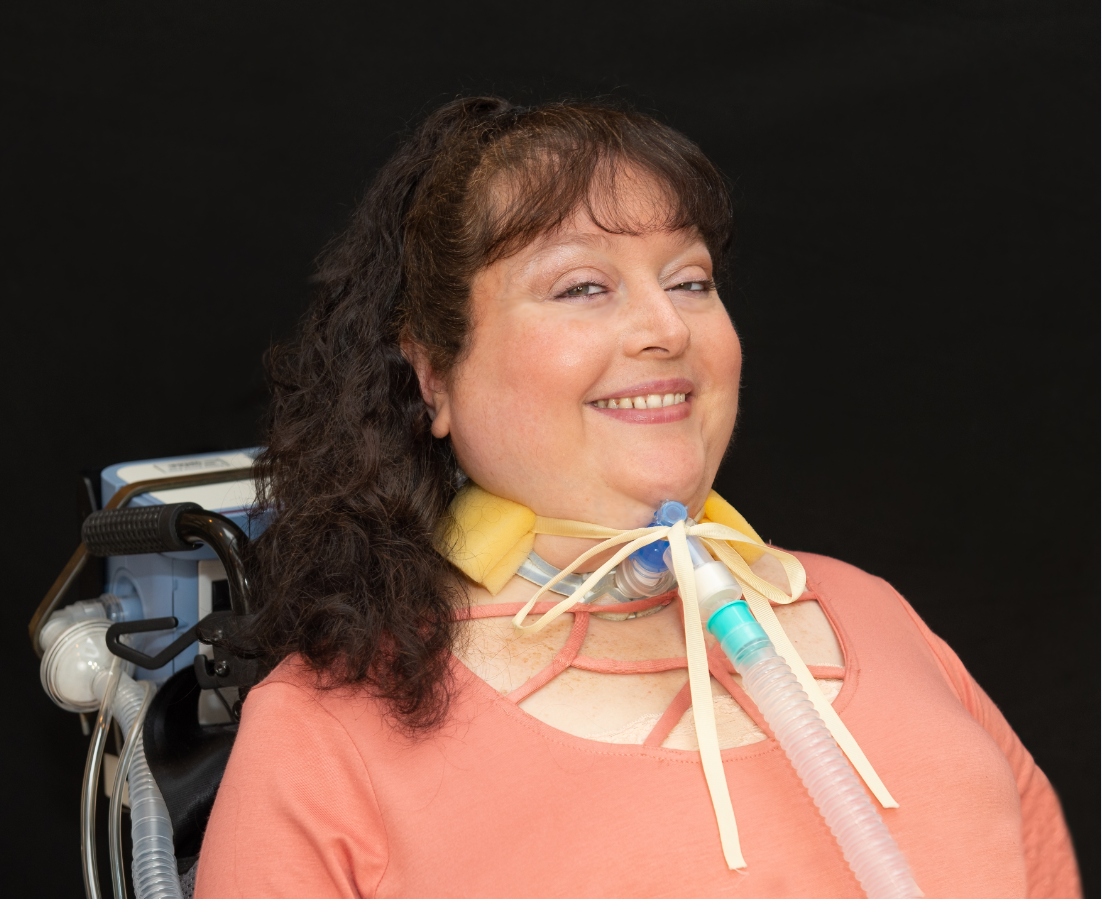
GRAND ROUNDS- Brooke Ellison, PhD
"Look Both Ways"Thursday, February 24, 2022
4:30pm- 6:00pm
Location: Zoom- Please RSVP for link
RSVP hereIn her new book, Look Both Ways, Stony Brook University's Dr. Brooke Ellison discusses her life, the last 31 years of which were lived with ventilator-dependent quadriplegia after a devastating accident that took place on Nicolls Road. Stony Brook University was the institution that saved her life, and it is now the institution where she has built her career. Through this book, Dr. Ellison examines not only the events that have shaped who she has become, but also the lessons – lessons of challenge, hope, vulnerability, and leadership – that she has derived from these events.
In this Grand Rounds, Dr. Ellison will discuss her life – including her accident when she was a child, her academic path through Harvard University, and her work now, as an Associate Professor of Applied Ethics at Stony Brook – and will share passages from her book. Dr. Ellison will also reserve time for question and answer about her life, her work, and views of the world when you look both ways.View flyer here
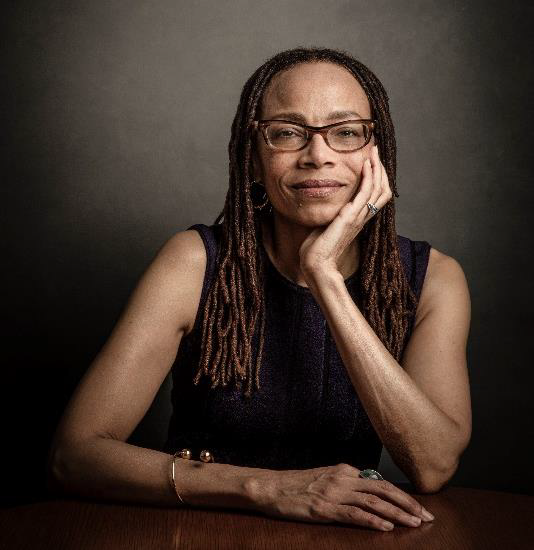
GRAND ROUNDS- Dorothy Roberts
"Ending the Legacy of Racism in Medicine"Thursday, February 10, 2022
5:00pm- 6:00pm
Location: MART Auditorium and Zoom- Please RSVP
RSVP hereFalse biological concepts of race, structural racism, and conscious or unconscious racial bias all contribute to racial inequities in health. The medical profession has long defined disease and treated patients according to race. But race-based medicine can be traced back to false assumptions about innate biological differences and to excuses for slavery and medical exploitation. Today, race-based medicine diverts attention and resources from the social determinants that cause appalling racial gaps in health. By understanding how racism has helped to structure medical knowledge, practice, and policies, we can end this backward legacy and collectively build a more equitable and heathier society.
View flyer here
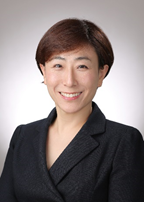
GRAND ROUNDS- So-Youn Park, MD
"Self-determination of Patients in Republic of Korea: Challenges in Medical Education for End of Life Care"Monday, February 7, 2022
4:30pm- 5:30pm
Location: Zoom- Please RSVP for link
RSVP hereIn the process of providing medical services, doctors witness countless deaths. Attitudes toward the acceptance of death vary across cultures, and related medical education for humanities could be diverse. The question that arises is, “What should doctors do to protect the dignity of patients at the end of the patient’s life?” In this conversation, Dr. Park will demonstrate how humanities education is conducted in medical schools in South Korea. In particular, she will talk about the culture and systems surrounding the provision of end-of-life care and medical education in South Korea.
View flyer here
- 2021
Past events
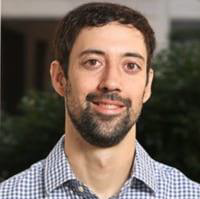
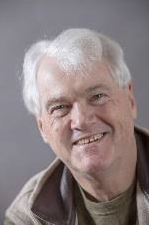
GRAND ROUNDS- Daniel R. George, PhD, MSc & Peter J. Whitehouse MD-PhD
"American Dementia: Brain Health in an Unhealthy Society"Thursday, December 2, 2021
4:30pm- 6:00pm
Location: Zoom- Please RSVP for link
RSVP hereHow do we improve brain health in the future?
For decades, researchers have chased a pharmaceutical cure for memory loss. But despite the fact that no disease-modifying biotech treatments have emerged, new research suggests that dementia rates have actually declined in the United States and Western Europe over the last decade. Why is this happening? And what does it mean for brain health in the future? In American Dementia, Daniel R. George, PhD, MSc, and Peter J. Whitehouse, MD, PhD, argue that the current decline of dementia may be strongly linked to mid–twentieth century policies that reduced inequality, provided widespread access to education and healthcare, and brought about cleaner air, soil, and water. They also:• Explain why Alzheimer’s disease, an obscure clinical label until the 1970s, is the hallmark illness of our current hyper-capitalist era.
• Reveal how the soaring inequalities of the twenty-first century—which are sowing poverty, barriers to healthcare and education, loneliness, lack of sleep, stressful life events, environmental exposures, and climate change—are reversing the gains of the twentieth century and damaging our brains.
• Tackle the ageist tendencies in our culture, which disadvantage both vulnerable youth and elders.
• Make an evidence-based argument that policies like single-payer healthcare, a living wage, and universal access to free higher education and technical training programs will build collective resilience to dementia.
• Promote strategies that show how local communities can rise above the disconnection and loneliness that define our present moment and come together to care for our struggling neighbors.
Ultimately, American Dementia asserts that actively remembering lessons from the twentieth century which help us become a healthier, wiser, and more compassionate society represents our most powerful intervention for preventing Alzheimer’s and protecting human dignity. Exposing the inconvenient truths that confound market-based approaches to memory enhancement as well as broader social organization, the book imagines how we can act as citizens to protect our brains, build the cognitive resilience of younger generations, and rise to the moral challenge of caring for the cognitively frail.
View flyer here

DISTINGUISHED GRAND ROUND SERIES IN MEDICAL HUMANITIES- Salvatore Mangione, MD
"Rembrandt’s Empathy"Thursday, November 18, 2021
4:30pm- 6:00pm
Location: Zoom- Please RSVP for link
RSVP hereThe year 2019 marked the 350th anniversary of Rembrandt’s death, a painter that has consistently fascinated physicians. Rembrandt maintained both professional and friendly relationships with doctors, and often portrayed them. In return, physicians have written a variety of papers on Rembrandt’s anatomy portraits, diagnoses of disease, description of depression, and his own depiction of aging. Yet, what Rembrandt’s eyes uniquely captured is the whole spectrum of the human condition. The emotions he portrayed on his canvases, and especially in his self-portraits, reveal not a painter but a psychologist. Thus, they allow us to look through someone else’s eyes and understand their sufferings and struggles. They remind us that we are all fighting a momentous struggle, and by doing so they foster our empathy. They remind us that without art we become less human, and in fact more likely to accept the dehumanization of others.
View flyer here
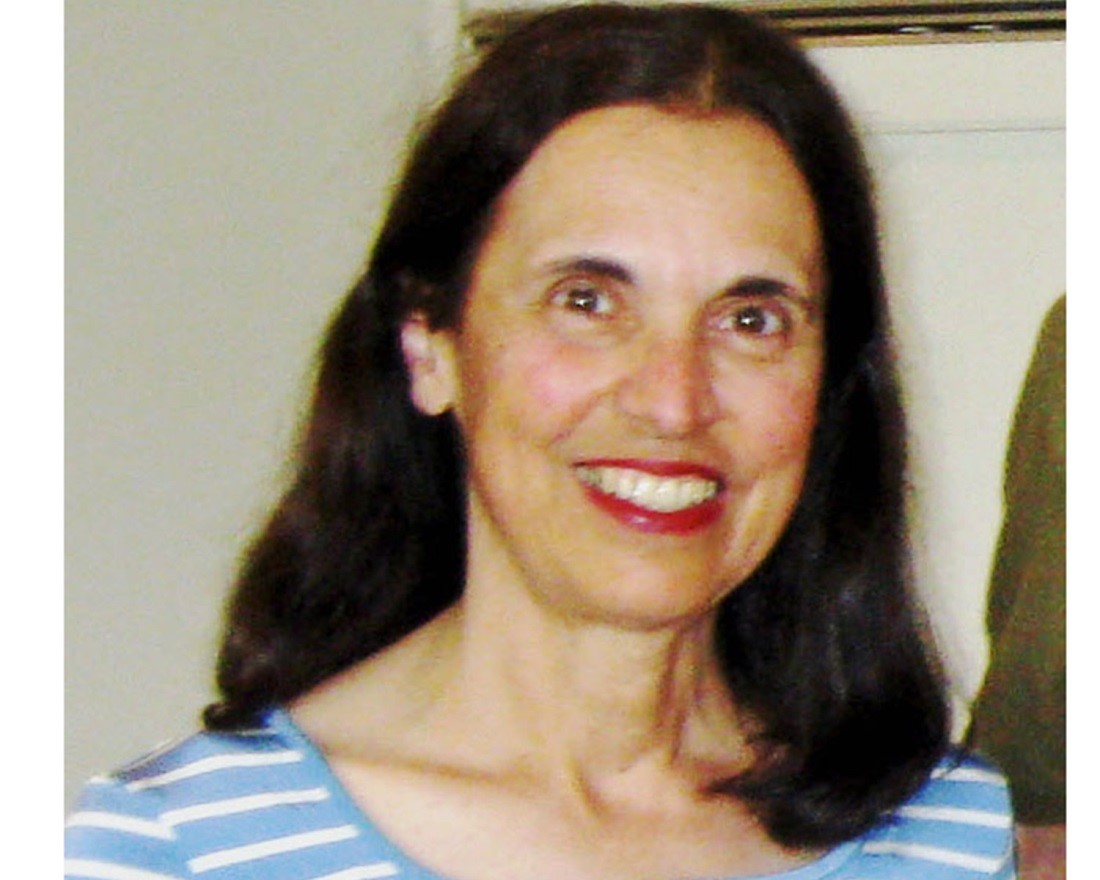
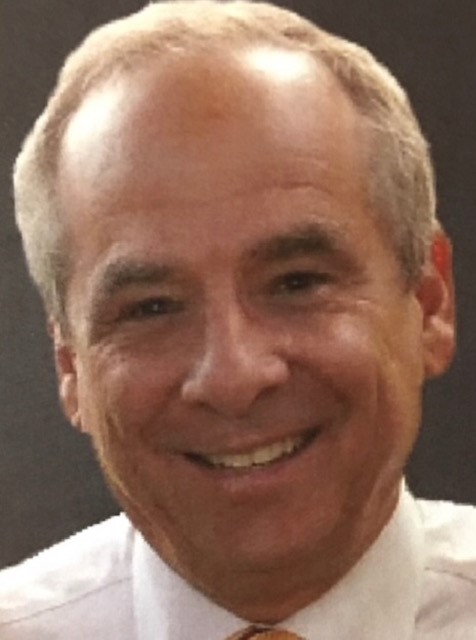
GRAND ROUNDS- Suzanne Nalbantian, PhD & Vincent de Luise, MD
"The Neuroscience and Neuroaesthetics of Creativity and the Artist Mind"Thursday, November 4, 2021
4:30pm- 6:00pm
Location: Zoom- Please RSVP for link
RSVP hereWhat is Creativity? What characterizes the creative and artistic mind? Among its components are memory,
imagination, intelligence and decision-making, and emotion. Can we localize creative processing in the brain? What
are the neural networks and brain states that subserve the “aha” moments? Cognitive neuroscientists have identified many of the neurotransmitters and interconnections of these networks. Researchers in both the arts and
sciences can demonstrate how the dynamic interaction of spontaneous and unconscious states with conscious,
regulatory control contributes to creativity.
In this panel discussion and inquiry, Professors Suzanne Nalbantian and Vincent de Luise will provide a broad and deep discussion of the burgeoning field of the cognitive neuroscience of creativity, across a spectrum of domains: neurophysiology, neurochemistry, neuropsychology, functional neuroimaging and humanistic studies. Fresh findings
in these areas are drawn from Nalbantian’s 2019 edited Oxford UP volume, Secrets of Creativity: What
Neuroscience, the Arts and Our Minds Reveal.View flyer here
DISTINGUISHED GRAND ROUND SERIES IN MEDICAL HUMANITIES- Vincent de Luise, MD
From Looking to Seeing: Perception and the Arts
"Blindsight: Creativity and Visual Loss in the masterworks of Turner, Cassatt, Monet, DeGas, Goya and O’Keefe"Thursday, October 28, 2021
4:30pm- 6:00pm
Location: Zoom- Please RSVP for link
RSVP hereIs Illness an obstacle, or an opportunity, for the genius of creativity? How did artists cope and contend with visual loss? In this conversation, we will discuss the visual impairments of several of the greatest artists in the western Canon - Rembrandt, Titian, Joseph Mallord William Turner, Mary Cassatt, Claude Monet, Edgar DeGas, Francisco Goya and Georgia O’Keefe - taking a “slow look” at their paintings, in an attempt to understand how they overcame visual loss to create masterpieces.
View flyer here
View Zoom recording here with Access passcode Tac@?4Kb
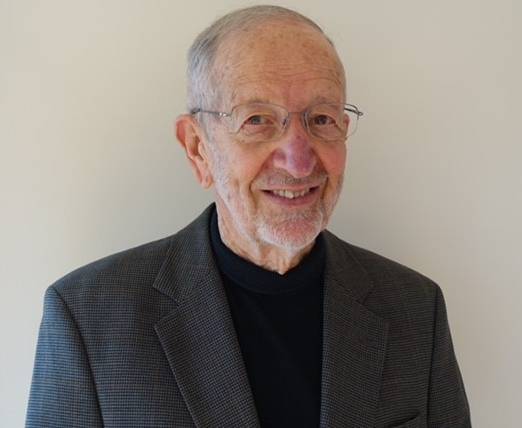
GRAND ROUNDS- Lester Paldy
"Perpetrators, Victims, and Resisters: Medical Eponyms from the Nazi Era"Thursday, October 14, 2021
4:30pm- 5:30pm
Location: HSC, Level 3, Lecture Hall 6 (directions)
RSVP hereMedical associations have called for the removal of eponyms honoring physicians and medical researchers like Hans Asperger and others complicit in murder and medical crimes during the Nazi period and accorded eponymic recognition to those who resisted and suffered. Despite those efforts, eponyms honoring Nazi medical war criminals are still in use. This talk reviews a relatively little-known part of the history of medicine and recommends a course of action for current and emerging generations of medical professionals.
View flyer here

DISTINGUISHED GRAND ROUND SERIES IN MEDICAL HUMANITIES- Salvatore Mangione, MD
"The Last Breath: TB in Opera and Culture"Thursday, September 30, 2021
4:30pm- 6:00pm
Location: Zoom- Please RSVP for link
RSVP hereThe year 1882 marked a turning point in the history of Tuberculosis, one of the greatest scourges ever inflicted upon mankind. On March 24, 1882 Robert Koch announced in Berlin his discovery of the Tuberculous bacillus, and during the same year Carlo Forlanini published in Italy eleven papers suggesting the curative potential of artificial pneumothorax. As a result of these diagnostic and therapeutic innovations, 1882 completely changed the public perception of the disease, which went from being some sort of God’s punishment for artistic sin and personal debauchery (Verdi’s Violetta in Traviata) to being simply a disease of abject poverty and failing public health (Puccini’s Mimi in Boheme). Hence, more than forty years after Susan Sontag’s publication of ‘Illness as a Metaphor’ we shall revisit tuberculosis and review how diseases can in fact acquire cultural overtones, and how often these perceptions change over time.
View flyer here
View Zoom recording here with Access passcode 3ew?w&Ad
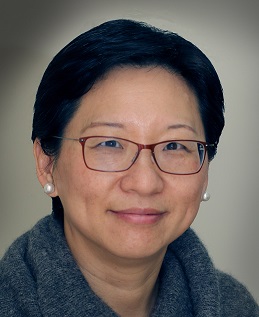
GRAND ROUNDS- Agnes Wong, MD, PhD, FRCSC
"The Art and Science of Compassion"Thursday, September 16, 2021
4:30pm- 6:00pm
Location: Zoom- Please RSVP for link
RSVP hereCompassion is both innate and a trainable skill that can be cultivated to promote flourishing in medical students and physicians. In this talk, Dr. Wong will clarify the difference between empathy and compassion, explain why compassion fatigue is a misnomer, and suggest that empathy fatigue/empathic distress are better terms to describe the exhaustion we experience when self-regulation is suboptimal. Based on the scientific principles of neuroplasticity, epigenetics, and inborn basic goodness, she will show the evidence supporting that mental training in the form mindfulness and lovingkindness practices can lead to many benefits, including better attention stability, meta-awareness, perspective-taking, and emotion regulation. Compassion is a boundless source of energy and resilience that not only benefits the receivers, but also enhances the givers' own well-being. It is an antidote to burnout that is widespread in healthcare. It is also an essential ingredient for a kinder, gentler society.
View flyer here
View Zoom recording here with Access passcode !2Zfx13m
DISTINGUISHED GRAND ROUND SERIES IN MEDICAL HUMANITIES- Vincent de Luise, MD
From Looking to Seeing: Perception and the Arts
"The Self Depicted: Masters of Self-Portraiture, from Rembrandt and Durer to van Gogh and Picasso"Thursday, August 26, 2021
4:30pm- 6:00pm
Location: Zoom- Please RSVP for link
RSVP hereWhy does an artist choose paint themselves? What aspects of personality and psychology is an artist trying to capture by portraying their own visage? What does self-portraiture tell us about the artists themselves? How do artists paint the hand they use to paint when they are in the act of painting?
Why did two of the greatest artists in the western Canon- Durer and Rembrandt - paint themselves so frequently? How was this identity formation framed by the societies in which they lived.
In this conversation, we will look at how Albrecht Dürer invented the psychological self-portrait through remarkable drawn and painted self-portraits, and Rembrandt van Rijn’s evolution and relentless lifelong journey to autobiography in art, to understand himself through self-portraiture.
We will then survey self-portraiture over the centuries, including masterworks by Michelangelo, Leonardo, Caravaggio, Titian, Artemisia Gentileschi, Velazquez, Goya, Manet, van Gogh, Picasso, Frida Kahlo and Chuck Close.
View flyer here
View Zoom recording here with Access passcode YCJ2*&3b

DISTINGUISHED GRAND ROUND SERIES IN MEDICAL HUMANITIES- Salvatore Mangione, MD
"The Art of Observation & the Observation of Art"Thursday, June 24, 2021
4:30pm- 6:00pm
Location: Zoom- See flyer for meeting detailsAstute observation is a right-brained skill and one that is highly desirable for a physician, since it’s not only essential for diagnosis but also for empathetic connection. Osler agreed. “The whole art of Medicine” he remarked “is in observation.” In fact, he saw “no more difficult art to acquire than the art of observation.” Yet, this skill is not taught during medical school or residency, and in fact may even be hindered by a curriculum heavily skewed towards the sciences. The result is the missing of many important clues. Observing artworks might offer a simple but effective way to rekindle both the right brain and the power of observation, and thus in turn improve bedside detection of physical findings. It may even help the reading of faces, a fundamental skill for physicians.
View flyer here
View Zoom recording here with Access passcode H08qJ*kW
DISTINGUISHED GRAND ROUND SERIES IN MEDICAL HUMANITIES- Vincent de Luise, MD
From Looking to Seeing: Perception and the Arts
"Art is an Illusion which begets Truth"Thursday, May 27, 2021
4:30pm- 6:00pm
Location: Zoom- See flyer for meeting detailsIn this conversation, we will seek to understand Picasso’s famous dictum that “Art is a Lie that makes us Realize Truths.” We will take a deep dive into optical illusion in art, looking at the works of the Renaissance master Arcimboldo “the Marvelous” and the twentieth century genius MC Escher, and then focus on the Synesthesias- those wondrous conjunctions of different senses, especially music-color synesthesia, examining the works of the artists Amy Beach and Vassily Kandinsky, and the composers Nikolai Rimsky-Korsakov and Olivier Messiaen. We will then survey the optical science of Color Vision and Art, focusing specifically on Seurat and his ideas that led to Pointillism and Modern Art.
View flyer here

DISTINGUISHED GRAND ROUND SERIES IN MEDICAL HUMANITIES- Salvatore Mangione, MD
"A Tale of Two Brains: How to Rekindle the Artist Within"Thursday, April 29, 2021
4:30pm- 6:00pm
Location: Zoom- See flyer for meeting detailsThe left and right brain are not two separate anatomical entities, but two different ways of engaging the world, metaphors for a close-up and wide-angle view that are equally necessary for the human experience. They are also fundamental for a practice of medicine that can be both wise and technically skilled. Yet, medical education fosters the left brain while ignoring, if not altogether stifling, the right brain. This lopsidedness may explain some of the paradoxes in today’s medicine, and will need redressing in order to prepare healers rather than technicians.
View flyer here
View Zoom recording here with Access passcode 8a!ZHE0Q
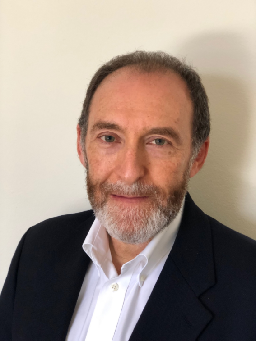
GRAND ROUND- Jeff Levin, PhD, MPH
"Religion and Medicine in the Age of COVID-19"Thursday, March 25, 2021
4:30pm- 6:00pm
Location: Zoom- See flyer for meeting detailsIntersections between the institutions of medicine and religion are multifaceted and of long standing. Whether working in cooperation or in competition, the medical and faith sectors have been part of each other’s history, for better or worse, since antiquity. In this presentation, the multiple dimensions of the ongoing conversation between religion and medicine will be discussed, with special reference to the present situation involving the SARS-CoV-2 outbreak and epidemic of COVID-19. Examples will be given of religious institutions and leaders serving as part of the problem—hindering response efforts, promoting misinformation, and fostering animosity—and as part of the solution—contributing to meeting the needs of vulnerable people and assisting in society’s recovery from the pandemic.
View flyer here
View Zoom recording here with Access passcode C5K?dwG=
DISTINGUISHED GRAND ROUND SERIES IN MEDICAL HUMANITIES- Vincent de Luise, MD
From Looking to Seeing: Perception and the Arts
"Beauty and the Brain"Thursday, February 25, 2021
4:30pm- 6:00pm
Location: Zoom- See flyer for meeting detailsWhat makes a work of art, say the Mona Lisa or van Gogh‘s painting, Irises, beautiful? Why are we humans neurologically hardwired to perceive it?
We will learn why the perception of beauty is both innate and cross-cultural. We will take a deep dive into the brain science of beauty, exploring the burgeoning domain of neuroaesthetics, and then observe and analyze visual archetypes in the history of art.
We will then focus on the various types of perspective across cultures, the canonical techniques of painting such as foreshortening, Unione, Cangiante, Chiaroscuro and Sfumato, and conclude with an examination of the camera obscura and camera lucida. Did artists use these optical devices in their paintings. How did these tools change their works of art?
View flyer here
View Zoom recording here with Access passcode GRWm0NA#
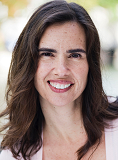
GRAND ROUNDS- Kristin Neff, PhD
"Self-compassion: Helping ourselves to help others"Thursday, February 11, 2021
4:30pm- 6:00pm
Location: Zoom- See flyer for meeting detailsSelf-compassion involves treating ourselves kindly, like we would a close friend we cared about. Rather than making global evaluations of ourselves as “good” or “bad,” self-compassion involves generating kindness toward ourselves as imperfect humans, and learning to be present with the inevitable struggles of life with greater ease. It motivates us to make needed changes in our lives not because we’re worthless or inadequate, but because we care about ourselves and want to lessen our suffering. This talk will present theory and research on self-compassion, which a burgeoning empirical literature has shown to be powerfully associated with psychological wellbeing. Research on self-compassion as a way to prevent burnout among mental health professionals will be presented, and the difference between compassion fatigue and empathy fatigue will be discussed. Finally, it will be argued that self-compassion has great potential for enhancing population mental health.
- Describe the three core elements of self-compassion
- Describe research demonstrating the link between self-compassion and wellbeing.
- Understand how self-compassion can be used effectively in caregiving settings to avoid caregiver burn-out.
View flyer here
View Zoom recording here with Access passcode A.M1WR8u

DISTINGUISHED GRAND ROUND SERIES IN MEDICAL HUMANITIES- Salvatore Mangione, MD
"Groupthink, Collective Evil, and the Holocaust"Thursday, January 28, 2021
4:30pm- 6:00pm
Location: Zoom- See flyer for meeting detailsSeventy-six years after the liberation of Auschwitz the horror of the Shoah remains as haunting to mankind as ever, as indicated by countless books, documentaries, and monographs dedicated to the subject. Recent attention has gradually shifted away from “perpetrators” and focused instead on the “rescuers” – those few courageous souls who chose to risk their lives so that others could live.
As the epitome of altruism for the betterment of mankind one would expect physicians to have been both rescuers and resisters during the Holocaust. Yet, German doctors were the most nazified profession in Hitler’s Reich, with every second male physician becoming a party member. In fact, many were perpetrators who not only provided “scientific” legitimization and manpower to domestic campaigns of sterilization and euthanasia, but who themselves participated in pseudo-scientific experiments on concentration camp prisoners. Hence, the need to revisit the topic.View flyer here
View Zoom recording here with Access Passcode: 4@+Ae5A&
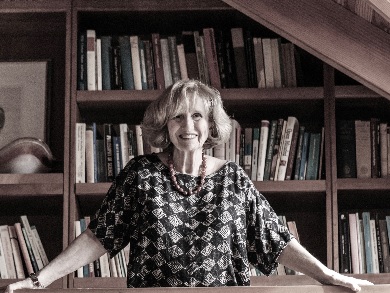
GRAND ROUNDS- Eva Kittay, PhD
"Learning from Cognitive Disability"Thursday, January 21, 2021
4:30pm- 6:00pm
Location: Zoom- See flyer for meeting detailsAs a philosopher and bioethicist I have found that my experience raising and living with a very significantly, multiply disabled daughter challenges many fundamental questions of meaning and morality that philosophers have pursued. I will provide an overview of how and why this is so, and how these questions have real practical import, especially during a crisis such as the Covid19 pandemic.
View flyer here
- 2020
Upcoming Events
Past events
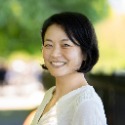
GRAND ROUNDS- Jane M. Chun, PhD
"Tending the caring heart within: Compassion training in medicine"Thursday, November 5, 2020
4:30pm- 6:00pm
Location: Zoom- Please RSVP for link
RSVP hereThe science and evidence are compelling – compassion benefits patient health outcomes, helps alleviate clinician burnout, strengthens relationships, and improves organizational measures such as employee turnover, absenteeism, revenue, and costs. Aspects of compassion training have also been shown to decrease racial bias. While we know compassion is helpful, what we’re less familiar with is how to cultivate compassion so it becomes our default stance in every moment.
The capacity to accompany suffering and discomfort (my own and others) with strength and a caring heart has become all the more essential in the context of a pandemic and social justice movement. In this experiential workshop, we will explore the science of compassion and the difference between empathy (empathic distress) and compassion, and experience a taste of compassion training through interactive and contemplative exercises.
View flyer here
GRAND ROUNDS- Vincent de Luise, MD
"Music and the Brain: Linking Melody and the Mind"Thursday, October 29, 2020
4:30pm- 6:00pm
Location: Zoom- Please RSVP for link
RSVP hereWe will take a deep dive into “Why Music”?
Why is music so essential, fundamental and necessary in our lives? Whether one loves jazz, rock, folk, heavy metal, or just can’t get enough Beethoven and opera, we humans are all neurologically “hardwired” for music, and virtually all of us are capable of being musical. Music exists in all known cultures, and the pentatonic scale and the octave are fundamental to almost all of them. Why would that be?
What is the Mozart effect? Does Mozart’s music make you smarter? Does the music of other composers make us smarter?
What about Music as Medicine. Can Music Heal? How does music work to make Parkinson Disease patients walk again, and Alzheimer’s patients remember their past? How does melodic intonation therapy work to rewire the brain so that a patient relearns how to speak by relearning how to sing?View flyer here
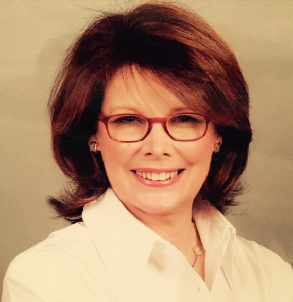
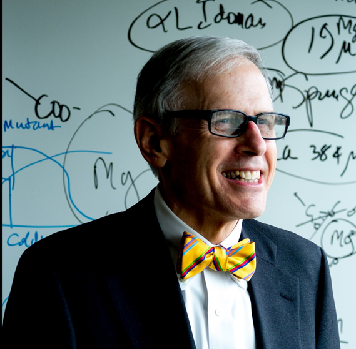
GRAND ROUNDS- Bobbi Coller, PhD & Barry S. Coller, MD
"Picturing Pandemic Disease"Thursday, October 22, 2020
4:30pm- 6:00pm
Location: Zoom- Please RSVP for link
RSVP hereThe current coronavirus pandemic is the largest and most devastating epidemic that we have experienced in our lifetimes. Historically, however, widespread episodic suffering from communicable disease began when humans started living in close proximity and was first recorded in the description of the deadly pandemic in Athens in 430 B.C.E. Artists who have witnessed the suffering and social dislocation wrought by waves of pandemics have created powerful images that capture and evoke the impact in particularly visceral ways.
Picturing Pandemic Disease will describe and discuss works of art produced during the onslaught of three major pandemics--the Black Death in the Middle Ages, the 1918 influenza pandemic, and the polio myelitis pandemic of the twentieth century ---placing them in the context of the medical understanding of the disease at the time of the outbreaks. The presentation will also highlight the societal impact of the pandemics and the tension they inevitably produce for physicians who are caught between individual patient-focused medical care and public health responsibilities.
The session, co-taught by Bobbi Coller, Ph.D. and Barry Coller, M.D. is adapted from their course “The Pulse of Art: Connections Between the History of Art and the History of Medicine” offered at the Icahn School of Medicine at Mount Sinai.
View flyer here

GRAND ROUNDS- Salvatore Mangione, MD
'SONO UN RAGAZZO DEL BASSO PIAVE': Hemingway at 100Tuesday, September 15, 2020
4:30pm- 6:00pm
Location: Zoom- Please RSVP for link
RSVP hereAt midnight of July 8 1918 a Red Cross worker from the Midwest was badly wounded on the Italian front, just a few yards from the Piave river. Despite 200 pieces of shrapnel, the young American still managed to hoist an Italian soldier on his shoulders and carry him to safety before being hit in the knee by machine gun fire, collapsing, and having an out of body experience.
He was two weeks short of his nineteenth birthday, and his name was Ernest Hemingway.
This presentation will review the wounding that changed Hemingway’s life and ultimately launched his literary career. It will also review Hemingway’s love for Venice, the Veneto region, and Italy in general. As he wrote to his sister Marceline after returning to the U.S. in 1919, “Sometimes I think we only half live over here. The Italians live all the way.”
View flyer here
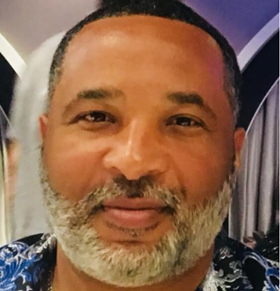
GRAND ROUNDS- Alfred Carter Jr.
"The Immortal Life of Henrietta Lacks: Continuing the Legacy"Wednesday, March 4, 2020
4:30pm- 6:00pm
HSC, Level 2, Lecture Hall 2 (directions)
RSVP hereIn 1951, Henrietta Lacks cells were taken, without her knowledge, during a biopsy for treatment of cervical cancer and cultured by Dr. George Gey who created the cell line known as HeLa. Her cells became the first immortalized human cell line and led to many important breakthroughs in biomedical research.
Henrietta’s grandson, Mr. Alfred Carter Jr., will share a slide show of events that he and his family have attended in association with Henrietta Lacks and the HELA cell line.
View flyer here
- 2019

GRAND ROUNDS- Salvatore Mangione, MD
"When Disease Strikes the Leader: Turning Points in History"Wednesday, December 4, 2019
4:00pm- 5:30pm
HSC, Level 2, Lecture Hall 2 (directions)
RSVP hereThe year 2019 marks the 100th anniversary of President Wilson’s stroke, which not only removed him from political life, but also began “the most serious case of presidential disability and medical cover-up in American history”. Hence, this anniversary provides us with a timely opportunity to revisit how leaders’ illnesses impact on national policies but also on their physicians’ allegiance, both issues of great interest to the medical community.
View flyer here
July 2020 publication- When Disease Strikes Leaders: What Should We Know?
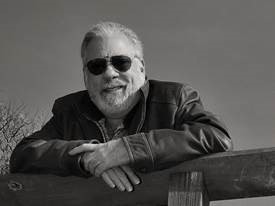
GRAND ROUNDS: Steven G. Taibbi
"Grateful Guilt: Living in the Shadow of My Heart"Thursday, November 14, 2019
4:00pm- 5:30pm
HSC, Level 3, Lecture Hall 6 (directions)
RSVP hereSteven G. Taibbi has been operated on his entire life. He was born with two "holes in the heart", the colloquial term for atrial septal defect or ASD. On April 26, 1953, the day he was born, he had his first three surgeries. He had his first open heart surgery for ASD repair in 1958, when he was five, and his second in 1959, which made him the first person to live through two open hearts for ASD repair. He almost died on his 17th birthday from a heart block incident, and was later told by the doctors that they didn't expect him to live past his 20's. By the time he was 34, the doctors told him he had beaten his heart troubles and that he should, "Go out and live." But things started to change in his early 40s and at age 45 he was diagnosed with end-stage heart failure caused by Idiopathic Cardiomyopathy. This had nothing to do with his previous heart troubles. In 2001, Steven had his first heart transplant at Columbia-Presbyterian. That heart lasted almost 15 years to the day, when he lost it to transplant coronary artery disease, a chronic form of rejection. Three years ago, he received his second heart transplant at Cedars Sinai, in California.
The one constant that Steven credits with his still being alive is that, even at the age of five, and lasting to this day, he has been devising strategies that would keep him alive. Mr. Taibbi's arsenal of strategies included everything from disassociation, gratitude, being his own advocate, being as much a part of the team as his caregivers, how he would prepare for a hospitalization and what he would wear in the hospital, among others. But the most important arrow in his quiver of strategies was creating an environment so that doctors and nurses wanted to come into his room and help him. He accomplished this not just by being extraordinary polite, courteous and welcoming to all who came into his room, but he accompanied this with a large dose of humor. Everyone who came into his room—from the head of cardiology to housekeeping staff—got this treatment. In his upcoming talk, Steven Taibbi will offer a detailed discussion of how, to a large degree, he saved his own life with these behaviors, the specific types of humor he used, as well as what the responsibilities are for every patient to become "part of the team."View flyer here
GRAND ROUNDS- Vincent de Luise, MD
"Slow Looking: Art and Observation in the Toolkit of Clinical Diagnosis Skills"Tuesday, October 22, 2019
4:00pm- 5:30pm
HSC, Level 3, Lecture Hall 6 (directions)
RSVP hereThis presentation will discuss a set of strategies including "slow-looking" to analyze representational and non-representational ("modern") art. These strategies can then be tailored to help in framing clinical diagnoses. Dr. de Luise will then discuss his work curating a rubric of medical humanities education for medical schools, such as Yale and Cornell, which includes "slow looking," "musicking," narrative medicine, movement and dance, and mindfulness training. Finally, he will focus on eye disease in art (Ghirlandaio, Brueghel, Munch) and conclude with an examination of several famous artists (Euphronios, Titian, Goya, Degas, Monet, O'Keefe) who had eye conditions and how those conditions were not obstacles, but rather, opportunities for them to further their creative genius.
View flyer here

GRAND ROUNDS- Lester Paldy
"The Nazi Doctors Trial and Informed Consent in Medical Research"Thursday, October 10, 2019
4:15pm- 5:45pm
HSC, Level 3, Lecture Hall 6 (directions)
RSVP hereThe International Medical Tribunal conducted at Nuremberg in 1947 to try German doctors and medical staff accused of war crimes and crimes against humanity was a landmark in the development of ethical codes governing the involvement of human subjects in medical research. This illustrated lecture for general audiences examines the events leading to the trial and its outcome that shaped the development of current ethical research codes.
View flyer here
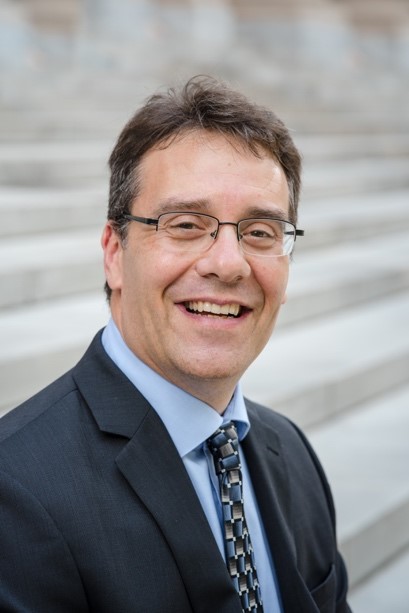
GRAND ROUNDS- Matthew T. Lee, PhD
"Addressing the Deep Roots of the Opioid Epidemic, Edgework, and Deaths of Despair"
Monday, August 12, 2019
4:00pm- 5:30pm
HSC, Level 3, Lecture Hall 6 (directions)
RSVP hereA popular kid with a bright future steps in front of a fast-moving train, an out-of-work middle aged man being treated for chronic pain with opioids succumbs to overdose, a rock climber suffers a fatal fall after deciding not to use safety ropes. How are these seemingly unrelated deaths actually connected and what might be done to reduce their prevalence? Dr. Matthew Lee, Director of Empirical Research for the Human Flourishing Program at Harvard University, offers insights into the fundamental causes of these examples of self-injury mortality by drawing on findings from empirical research in dialog with deep wisdom from the humanities.
View flyer here
4th Annual Medical Ethics Symposium: Ethical Decision Making
Medical, Cultural, Relgious and Ethical Conflicts Encompassing Brain Death when Paitents, Families and Healthcare Providers Disagree
Tuesday, August 6, 2019
8:30am- 4:00pm
Medical and Research Translation (MART) Building AuditoriumIt is vital that healthcare providers in critical care are fully informed about the current definition of brain death and have the tools to discuss this with families. When/if conflicts arise, such as family refusal of performing brain death protocol, or lack of acceptance of the concept of brain death, providers need to have the skills and knowledge to discuss these conflicts with the families in a culturally, religiously and ethically appropriate manner. In general, physicians and others in healthcare under perform in end of life conversations. Brain death, especially when due to a traumatic and sudden event, is a crucial time to have skills to navigate compassionate and emphatic discussion to assist families and other loved ones during this difficult time.
The goal of this symposium is to clarify the current definition of brain death. Objectives also include the skills needed to respectfully handle requests for accommodations based on sincere beliefs while also managing the moral and ethical dilemmas that may arise in critical care providers of care for a patient who is declared brain dead.
Program Schedule
Additional information can be found here

GRAND ROUNDS- The Doctors Are In: Poetry Presentation
Drs. Maria Basile, Richard Bronson, and Jack Coulehan. Choreographed and Adapted for Presentation by Lauren Kaushansky.
Thursday, May 16, 2019
4:00pm- 5:30pm
Department of Family, Population and Preventive Medicine, Room 067
(directions)
RSVP hereIt is an unusual combination, Physician and Poet. Perhaps the poets and writers Anton Chekhov, Arthur Conan Doyle, Oliver Wendell Holmes, and William Carlos Williams sound familiar, but admittedly examples are few and far between, and women such as Danielle Ofri and Perri Klass are all newer additions to the list. For these reasons and many more, I am delighted to help choreograph and offer you, The Doctors Are In.
The “Doctors” in this case are members of the Astonished Harvest Writers Group, Maria Basile, Richard Bronson, and Jack Coulehan. My life intersected with these wonderfully talented, intelligent, and robust, multi disciplined physicians mostly during discussions of Walt Whitman, whose 200th birthday we will be celebrating this Spring. Walt, a man of integrity and compassion, also chose poetry as the art form best to express his celebration of every walk of life, from nature to work to the individual. He was a great observer of the human condition and spirit. Though not a doctor, Walt generously volunteered as a nurse during the Civil War, attending to the spirit and social needs of the wounded and injured.
No better segue exists to today’s Physician Poets, Drs. Basile, Bronson, and Coulehan, than to say they too have used their keen observations, compassionate spirits, and talent as wordsmiths to compose poems that capture the lives and experiences of those around them. Though many of the poems revolve around the practice of medicine, their work is more encompassing; their poetry reflects their richly dimensional lives.
The word play interests us. Understandably, it is not often associated with doctors, but if you use the theatrical definition, our objective becomes clear. Ancient Greek theater was a means to reflect upon culture, exploring political, social and medical themes through comedy and drama. Today’s presentation reflects our desire to bring the poetry of Drs. Basile, Bronson and Coulehan off the page, have it walk around the room amongst the audience, enrich its meaning with images and music, and make what we hope will be a memorable experience, one that widens your view of what can emerge from the minds of physician poets. Enjoy!
Lauren Kaushansky
Maria Basile, MD
Dr. Maria Basile is a colorectal surgeon who recently left private practice to pursue interests in Healthcare Policy and Administration. Dr. Basile is a Past President of the Suffolk County Medical Society and serves on the Council of the Medical Society of the State of NY. She has spoken regionally and nationally on the topics of physician engagement, medical humanities, ethics, and practice transformation. She is on the Core Faculty at Stony Brook University School of Medicine’s Center for Medical Humanities, Compassionate Care and Bioethics, where she teaches medical school and graduate-level courses in Literature and Medicine. A physician-poet, she is author of Minimally Invasive: poems from a life in surgery. Her poems have been published in Journal of the American Medical Association, Touch: the Journal of Healing, and anthologized with poetry and creative writing of physicians, surgeons, and other health care professionals.
Richard Bronson, MD
Richard Bronson, M.D. is Professor of Obstetrics & Gynecology at Stony Brook University Medical Center. Dr. Bronson is a recipient of the Leonard Tow Humanism in Medicine Award of the Arnold Gold Foundation and the APGO Excellence in Teaching Award. Dr. Bronson is author of three collections of poetry and is on the Board of Trustees of the Walt Whitman Birthplace Association and the editorial board of The Pharos of AOA. A recipient of the Poem of the Year Award of the American College of Physicians and winner of the Institute for Medicine in Contemporary Society Prize, his poems have appeared in JAMA, The Annals of Internal Medicine, the Canadian Medical Association Journal, Family Medicine Journal, The Pharos, and BMJ Humanities.
Jack Coulehan, MD
Jack Coulehan is a Senior Fellow of the Center for Medical Humanities, Compassionate Care, and Bioethics at Stony Brook University. His essays, poems and stories appear frequently in medical journals and literary magazines, and his work is widely anthologized. He is the author of six collections of poetry, including most recently The Wound Dresser (2016), which was a finalist for the Dorset Poetry Prize. His other books include two edited two anthologies of poems by physicians; Chekhov’s Doctors, a collection of Anton Chekhov’s medical tales; and an award-winning textbook The Medical Interview: Mastering Skills for Clinical Practice. Among Jack’s honors are the Humanities Award of the American Academy of Hospice and Palliative Medicine and the Nicholas Davies Scholar Award of the American College of Physicians for lifetime contributions to the humanities in medicine.
Lauren Kaushansky, MA
Lauren Kaushansky teaches classes in education and drama, as well as history. Her love of theatre production and choreography allows her to infuse vitality and perspective into the performance of our Stony Brook physician poets. Her passion for drama has guided her in travels around the world from Africa to Cambodia, introducing uplifting theatre in hospitals and schools for vulnerable children. A Distinguished Lecturer at Stony Brook University, she is regularly involved as a leader in the Renaissance School of Medicine education programs requiring theatrical production and design.
View flyer here

GRAND ROUNDS: Lisa Wong, MD
"The Healing Art of Music"
Thursday, April 25, 2019
4:00pm- 5:15pm
HSC, Level 3, Lecture Hall 6 (directions)
RSVP here
Music the "universal language" has the power to connect people who share no other common ground. Its power to bring people together is intuitively understood, but only through recent advances in neuroimaging and cognitive neuroscience have we been able to start moving beyond intuition to consider music's impact on the brain and potential to heal the individual and the community. Dr. Lisa Wong, a pediatrician and musician, invites you to deepen your relationship with music through the perspectives of neuroscientist, educator, musician, therapist, patient, and healthcare provider.View flyer here

GRAND ROUNDS: Sal Mangione, MD
"The Art of Observation & the Observation of Art"
Thursday, February 14, 2019
5:00pm- 6:30pm
HSC, Level 3, Lecture Hall 6 (directions)
RSVP here
Astute observation is a right-brained skill and one that is highly desirable for a physician, since it’s not only essential for diagnosis but also for empathetic connection. Osler agreed. “The whole art of Medicine” he remarked “is in observation.” In fact, he saw “no more difficult art to acquire than the art of observation.” Yet, this skill is not taught during medical school or residency, and in fact may even be hindered by a curriculum heavily skewed towards the sciences. The result is the missing of many important clues. As Holmes reminded Watson, “You see, but you do not observe.” Leonardo put it more bluntly: “There are three classes of people: those who see, those who see only when shown, and those who can’t see.” Hence, observing artworks might offer a simple but effective way to rekindle both the right brain and the power of observation, and thus in turn improve bedside detection of physical findings. It may even help the reading of faces, a fundamental skill for a physician. Lastly, art observation fosters visual-spatial thinking -- a fundamental aspect of innovation and creativity.Building on this premise we’ll present a series of cases that might: 1) Enhance participants’ interest in the arts; 2) Suggest how this might actually be beneficial for the practice of medicine; 3) Present pathognomonic physical findings; and 4) Foster “visual literacy,” i.e., the ability to find meaning in imagery, which in turn translates into the capacity to reason physiology and pathophysiology from visual clues -- a desirable skill for all physicians.
View flyer here
- 2018
GRAND ROUNDS: Vincent deLuise
"With an Artistic Vision: Perception and the Arts"
October 23, 2018
4:30-5:45pm
HSC, Lecture Hall 3 (directions)
RSVP here
What is the relationship between beauty, art, and the human experience? Is Homo sapiens neurologically “hard-wired" to perceive beauty? The field of neuroaesthetics is blossoming, with foundational principles that correlate Beauty and the Brain. Several fascinating sidebars at the intersection of perception and the arts will be explored. An overview of visual archetypes in the history of art will be followed by an examination of the artistic oeuvre of Monet, DeGas, van Gogh, El Greco, Goya and O'Keefe, positing the question: Is eye disease an obstacle, or is it an opportunity, for artists fully to manifest their genius? Music is a foundational aspect of beauty and is an essential part of all cultures. What are the evolutionary adaptive mechanisms for it? Where does music go in the brain? How is music neurologically related to beauty and pleasure? What are the synesthesias? What is the Mozart “effect”? Can music increase cognition? Can music heal?View flyer here
GRAND ROUNDS: Meghan MacLean Weir, MD
"The Book of Essie: The Role of Literature in Public Health"
October 18, 2018
5:00-6:15pm
HSC Level 3, Room 152 (directions)
RSVP hereAnton Chekhov once famously described his dual role as physician and writer in a letter to a friend this way: “Medicine is my lawful wife, and literature is my mistress. When I get fed up with one, I spend the night with the other.” Though few physician-writers will achieve the same degree of fame as the likes of Chekhov, William Carlos Williams, or Michael Crichton, the abundance of poets, essayists, and novelists in the field is hardly surprising. Medicine, after all, is essentially storytelling, and storytelling, at its most pure, can be healing.
Despite this, most physician-writers describe the two callings as separate, if complementary. But, just as primary care pediatricians now consider it part of their medical practice to blog about the importance of flu shots or publish regular newsletters to increase health literacy, so, too, should the physician-writer embrace their craft, in certain instances, as part of, rather than apart from, their practice of medicine. The Book of Essie was written with this goal in mind. The story raises issues I grappled with during each of my shifts in the Emergency Department and allowed me to reach an audience far larger than I could have within the hospital walls.
View flyer here
GRAND ROUNDS: Lester Paldy
"An Award to an Aerospace Physician, Medical Ethics, and National Security"
September 13, 2018
4:30-5:45pm
HSC, Lecture Hall 1 (directions)
RSVP here
As World War II was ending in 1945, many German scientists, physicians, and engineers involved in the Nazi war effort fled west toward U.S. and allied forces to avoid what they believed would be severe retribution from the Soviets. Over the next few years as the Cold War intensified, U.S. Army intelligence organized a secret program known as Operation Paperclip to bring more than 1,600 of these scientists to the U.S. to work on space and military research projects. Operation Paperclip’s existence was closely held to avoid potential public protest. One of the physicians Dr. Hubertus Strughold, MD, worked with the U.S. Air Force and NASA to develop manned spaceflight capabilities, became a U.S. citizen, and was honored by his American colleagues as the “Father of Space Medicine.” This talk examines the history of Strughold’s work during WW II in Germany and our own nation’s past willingness to overlook ethical violations in the name of national security. It reminds us of the potential for conflict, even today, between state power and the ethics of our professions and the need to remain on guard against the practice of medicine without conscience.
View flyer here
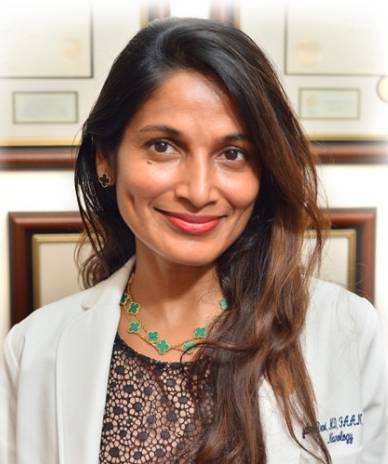
GRAND ROUNDS: Dr. Gayatri Devi
"The Spectrum of Hope"
May 14, 2018
4:15-5:45pm
HSC, Lecture Hall 1 (directions)
RSVP here
Imagine finding a glimmer of good news in a diagnosis of Alzheimer’s. And imagine how that would change the outlook of the 5 million Americans who suffer from Alzheimer’s disease and other dementias, not to mention their families, loved ones, and caretakers. A neurologist who’s been specializing in dementia and memory loss for more than 20 years, Dr. Gayatri Devi rewrites the story of Alzheimer’s by defining it as a spectrum disorder—like autism, Alzheimer’s is a disease that affects different people differently. She encourages people who are worried about memory impairment to seek a diagnosis, because early treatment will enable doctors and caregivers to manage the disease more effectively through drugs and other therapies.
Live Stream available on Echo360 here
Related Article: "Alzheimer’s Disease in Physicians — Assessing Professional Competence and Tempering Stigma", New England Journal of Medicine

GRAND ROUNDS : Dr. Salvatore Mangione
"The Archetypes of Medicine: A Job Description for the 21st Century"
February 15, 2018
Medicine is facing an identity crisis, one that might find resolution by revisiting a past rich in multifaceted individuals who transcended the strict definition of ‘doctor’, excelled in other fields of human endeavor, and showed us different ways of being physicians. This presentation will review twelve archetypes that have been part of the profession since its inception, but that, as of late, might have been forgotten. It will then focus on three archetypes: the physician as poet (John McCrae); the physician as humanist (William Osler); and the physician as philosopher (Rita Levi Montalcini). Our goal is to elicit discussion and introspection, with the premise that being a doctor ought to be something larger than being a mere technician. If our premise is accepted, then the next step would be to identify those personal traits that made those archetypes possible, so that we can start both recruiting for them and then nurturing them during training.View video here
- 2017
With an Artistic Vision: Further Inquiries into Perception, the Arts and Eye Disease
Vincent de Luise, MD
December 4, 2017
Are humans “hard-wired” to perceive beauty? Are there foundational neurological underpinnings to aesthetics? The field of neuroaesthetics is blossoming, and this talk will explore some fascinating sidebars at the intersection of vision, perception and the arts.
For more information click here.
Rediscovering Performance in Healing: What can we learn from Shamans and Medicine Men?
Atay Citron, PhD
November 8, 2017
While the achievements of modern medical science are many, healing also involves confidence and trust in healers. The field of medical anthropology is replete with study of shamans and medicine men who engage in healing practices in indigenous cultures.
For more information click here.
Human First! A Workshop Inspired by Medical Clowning
Michael Christensen
October 26, 2017
Medical clowning is a therapeutic method aimed at helping children and adult patients through interactive humor, folly, and playful behavior. The skills of successful hospital clowns include the ability to rapidly read audiences and assess environments, to respond to subtle physical and emotional cues, to create genuine contact, to give patients, parents and staff the feeling that they are there specifically for them, to pay attention, in short, to be totally present.
For more information click here.
Medical Clowning: An Introduction
Atay Citron, PhD
October 26, 2017
Medical clowning is a therapeutic method aimed at helping children and adult patients through interactive humor, folly, and playful behavior. Since its inception as a profession in New York in 1986, medical clowning has become an intrinsic part of medical treatment in children’s hospitals and pediatric wards in the U.S. (including 12 East Coast hospitals, among them Yale- New Haven, Johns Hopkins, and Memorial Sloan Kettering), in the majority of hospitals in Europe, Australia and Israel, and is spreading throughout the world.
For more information click here. - 2016
2016
Mohammadreza Hojat, PhD
Director of the Jefferson Longitudinal Study of Medical Education at Sidney Kimmel (formerly Jefferson) Medical College, Thomas Jefferson University
Empathy in Health Professional Education: What Have We Learned and Where Do We Go from Here?
Nov, 1 4:30-6:00 LH 1, details
Pediatric Palliative Care and Bereavement Conference
Keynote by Stephen Post
May 25, 2016 details
Astonished Harvest Poetry Collective
Colloquium Presentation and Reading
HSC Level 3 Room 155
May 12, 12:00-1:00, details
MD with Scholarly Concentration Research Presentations
Presentations and Poster Session
LH6 and HSC Galleria
April 27, 2016 8:30-11:00AM
Joseph J. Fins, MD, MACP
E. William Davis Jr., MD, Professor of Medical Ethics and Chief of the Division of Medical Ethics, Weill Cornell Medical College
Rights Come to Mind -- Grand Rounds and book signing
April 26, details
The Golden Rule and a Healthier, Happier Life
Stephen Post
Mind, Body and Spirit Day 2016, Wang Center
April 16, 2016 details
LiveOnNY presents: donation after cardiac death (DCD)
Brian Papszycki
Lecture Hall 5
March 30th, 2016 details
Lost In Translation: Navigating the Healthcare System with an Interpreter.
Schwartz Rounds
March 17, 2016 details - 2015
2015
Stephen Post: Consciousness, Mind and the Deeply Forgetful
Keynote Presentation Indian Institute for Advanced Studies in Bangalore, India
December, 2015 videoWhen the Switch Flips: Managing Psychiatric Patients on a Medical Floor
Schwartz Round
November 17, 2015 detailsStephen Post: It’s Good to be Good – How Helping Others Contributes to the Flourishing of Givers.
TedxSBU talk
November 6, 2015 videoJames H. Jones, PhD
Alumni Distinguished Professor, Emeritus, University of Arkansas
The Tuskeegee Syphilis Experiment: A Tragedy of Race and Medicine
October 29, videoJames H. Jones, PhD
Alumni Distinguished Professor, Emeritus, University of Arkansas
The Agony of Hope: David Vetter, the Boy in the Bubble
October 29, videoStephen Post: Who Benefits from Compassionate Care
Spiritual Care Week Talk
October 26, 2015. 11:00AM in Lobby Conference Rooms 1 and 2The Heart is Still Beating, How Can I Let Go
Schwartz Round
September 29, 2015 detailsSal Mangione, MD
Associate Program Director for Internal Medicine Residency at Jefferson Medical Center
NAZI Medicine, the Holocaust, and Problem of Collective Evil
September 24, videoAdolescents and Treatment Refusal: Who Rules the Roost?
Schwartz Round
July 31, 2015 detailsPerson-centered medicine: Balancing the Welfare of Physicians and Patients
Stephen Buetow, PhD University of Auckland
Monthly Colloquium
June 25, 2015 videoPalliative Care Conference
June 20th, 2015 details - 2014
2014
Annual Holiday Party/Open House
December 15th, 2014 detailsJoshua Thompson, Phd
Department of Philosophy, Saint John's University
Hope and the Self
October 30th, detailsSomatics and the Deeply Forgetful: a panel discussion
Moderator-Stephen G. Post, PhD
Charles B. Wang Center, Lecture Hall 1
October 16th, 2:30 detailsIs Inequality Making us Sick? How the Distribution of Power, Wealth and Resources Shapes Opportunities for Health.
Carla Keirns
Lecture Hall 1
October 1st, 4:30-5:30 detailsVincent Deluise: With an Artistic Vision: Further Inqueries into Perception, the Arts and Eye Disease
Center for Medical Humanities, Compassionate Care and Bioethics Colloquium Series
Department of Preventive Medicine, HSC Level 3, Room 066
September 25, 12:00-1:00 detailsAagje Swinnen: Healing Words: Critical Inquiry of Poetry Interventions in Dementia Care
Center for Medical Humanities, Compassionate Care and Bioethics Colloquium Series
Department of Preventive Medicine, HSC Level 3, Room 066
May 29, 12:00-1:00 detailsAagje Swinnen: Healing Words: Critical Inquiry of Poetry Interventions in Dementia Care
Presentation at Aging Today: Literature, Film, and Social Change conference
The Humanities Institute
May 2nd, 11 a.m. - 12:20 p.m. detailsRevisiting the Organ Shortage Problem:Allocating Scarce Resources/Utilizing New Resources
Conference
HSC Lecture Hall 1
April 21, Noon-3:00 detailsThe Prevention and Treatment of Cancer
Educational Event
The Wang Center
March 22, 8:30 to 3:00 Details and free RegistrationFixed
Viewing and discussion
The Wang Center
5-8 PM, Feb 27th, 2014 DetailsSomatics and the Deeply Forgetful
Panel discussion with Stephen Post and Lisa Starno-Paul
The Humanities Institute
February 19th, 2014 Details - 2013
2013
Center Open House/Holiday Party
December 16th, 2013 detailsStephen Post: Hope, Spirituality, and the Deeply Forgetful: Caregivers and Perspective
The Spirituality of Hope and Healing: Seeking the Sacred in the Midst of Despair
22nd Annual Psychotheraphy and Faith Conference
November 15th, 2013 details here (large PDF)Stephen Post: Hope, Ethics and the Deeply Forgetful
15th Annual Alzheimer’s Conference for Caregivers
November 8th, 2013 12:45-2:00
Registration requireddetailsStephen Post: Home in Caring for the Deeply Forgetful: The Ethics of Enduring Selfhood
14th Annual Alloway Lecture
September 11th, 2013 4:00-5:30 detailsCompassion, Spirituality & Health
Stephen Post
Keynote Address
Fifth National Conference on Spirtituality and Health
Australia, detailsPoetry Reading: featuring members of Astonished Harvest
Gallery North
June 22, 2013 2:00-4:00 PM detailsAndrew Flescher: Addressing the Organ Shortage Crisis short of Legalizing the Sale of Organs
Philosophy Department
April 11, 2013Stephen Post: Charles Evans Annual Lecture on the Art and Science of Caregiving
New York Alzheimer's Association
April 10, 2013Maria Basile and Richard Bronson: Astonished Harvest faculty at the AMSA
Sterling, Virginia
February 1-3, 2013 - 2012
2012
Nathaniel Comfort, PhD, Johns Hopkins University, Institute for the History of Medicine
History of Medicine Lecture
"From Medical Eugenics to Genomic Medicine: The Relief of Suffering and the Self-Direction of Human Evolution."
November 28 detailsDebate on the Affordable Healthcare Act with Andrew Flescher
November 28Stephen Post: The Care of the Deeply Forgetful
Westminster Cathedral WHO Plenary
November 27, 2012Stephen Post: Ethics and Hope for the Deeply Forgetful: Dying, Dignity and Dementia
Memorial Sloan-Kettering Cancer Center Grand Rounds
November 15, 2012Andrew Flescher: Rethinking the Insanity Defense
Department of Psychiatry, Grand Rounds
October 30th, 11:30am-12:30pm, HSC Lecture Hall 6Lisa Lavine Nagy, MD, Medical Director: Vineyard Personalized Medicine (Vineyard Haven, MA)
History of Medicine Lecture
What Really Causes Illness?: The role of Environmental Medicine in the Future of Health Care.
October 18th, 4:00-5:00pm, HSC Lecture Hall 2 detailsStephen Post: Hope, Ethics and the Deeply Forgetful
University of California at Berkeley
October 5th, 2012Stephen Post: Unlimited Love as Ultimate Reality: Is There Any Even Somewhat Plausible Rapprochement Between Mysticism and Physics
Public Lecture at Columbia University Center for the Study of Science and Religion
September 27, 2012Stephen Post: Sources of Hope and Continuing Self Identity: Finding Meaning in the Care of Those with Memory Loss
Karl Kinanen Public Lecture
April 19, 2012 detailsCommodification and Organ Donation
Conference
April 16, 2012 detailsJohn Coulehan-Bursting with Danger and Music
Poetry Reading, Barnes & Nobles in Lake Grove
April 12, 2012 (7:00PM)Festival of the Moving Body
Conference
March 9, 2012 detailsPartners in Quality and Patient Safety Day
Conference
March 7th details - 2011
2011
Astonished Harvest
Poetry Workshop
December 5, 2011 detailsStephen Post
Keynote Lecture at Conference on Volunteerism and Social Responsibility
November 5, 2011 detailsAndrew Flescher--Psychopathy and the New Manichean Challenge to Moral Agency
Public Lecture at Hartford Seminary
November 9, 2011 videoAstonished Harvest
Poetry Workshop
November 7, 2011 detailsNeuroscience of Compassion
Conference
September 16, 2011 details9-11 Ten
Memorial Program
May 5, 2011 detailsMD with Recognition Annual Research Day
May 4, 2011 detailsStephen Post--Hope in the Time of Loss: Psychological, Philosophical, and Clinical Perspectives
Caregiver's Bereavement Conference
May 4, 2011 detailsAstonished Harvest
Poetry Workshop
May 2, 2011 detailsGeorge Vaillant
Psychiatry Grand Rounds
April 26, 2011Astonished Harvest
Poetry Slam
April 11, 2011 detailsThinking about Consent and Procurement in Organ Donation: Some Lingering Issues in the Areas of Ethics, The Law, and Public Perception
Conference
April 11, 2011 detailsShould Health Care Be a ”Right?“
Invited Lecture
April 7, 2011 detailsAstonished Harvest
Poetry Workshop
April 4, 2011 detailsGeorge Weisz, McGill University--Reinventing Chronic Disease in the 20th Century
History of Medicine Lecture
March 29, 2011 detailsSorrel King talks about patient safety awareness
Hospital Patient Safety Week
March 9, 2011 detailsCarla Keirns--An Epidemic Resolved-Childhood Asthma, Urban Health and the Cycles of Public Policy
New York Academy of Medicine Talk
March 7, 2011David S. Jones, Massachusetts Institute of Technology--The Rise and Fall of Coronary Revascularization
History of Medicine Lecture
March 2, 2011 detailsChristian Warren, Brooklyn College--HomeSick: Three Stories from the History of Environmental Health
History of Medicine Lecture
February 15, 2011 details - 2010
2010
Astonished Harvest
Poetry Workshop
February 14, 2010 detailsAstonished Harvest
Poetry Workshop
January 10, 2010 detailsAmy Fairchild, Columbia University--Exodous of Public Health: What History Can Teach Us About the Future
History of Medicine Lecture
December 7, 2010 detailsAstonished Harvest
Poetry Workshop
December 6, 2010 detailsStephen Post--Creating a Medical Culture of Compassionate Care Enhancement
Lecture
November 30, 2010 detailsCenter Open House
Open House
October 27, 2010 detailsAstonished Harvest
Poetry Workshop
October 18, 2010 detailsAstonished Harvest
Poetry Workshop
October 4, 2010 detailsStephen Post--Hope as a Spiritual Dynamic: Different Religious Perspectives on the End of Life
Presentation at IMANA-Hofstra Ethics Symposium “End of Life Issues: Ethical and Religious Perspectives”
September 18, 2010 detailsAstonished Harvest
Poetry Workshop
August 16, 2010 detailsAstonished Harvest
Poetry Workshop
July 26, 2010 detailsAstonished Harvest & AMSA
Healer's Voices: A Spoken Word Program
July 23, 2010 detailsCompassionate Care in the Hospital
Music for hospital patients
July 17, 2010Astonished Harvest
Poetry Workshop
May 17, 2010 detailsAstonished Harvest
Poetry Reading at the Emma S. Clark Memorial Library in Setauket
May 7, 2010 detailsAstonished Harvest
Poetry Workshop
May 3, 2010 detailsDana Lustbader--The Ethical Boundaries of Organ Donation
Lecture
April 26, 2010 detailsAstonished Harvest
Poetry Workshop
April 26, 2010 detailsJeremy Greene, Harvard--What's in a Name? Generic Drugs and the Persistence of the Brand
History of Medicine Lecture
April 20, 2010 detailsAstonished Harvest
Poetry Workshop
April 19, 2010 detailsAstonished Harvest
Poetry Workshop
April 12, 2010 detailsAstonished Harvest
Poetry Workshop
April 5, 2010 detailsAstonished Harvest
Poetry Reading at the Walt Whitman Birthplace
March 28, 2010 detailsAstonished Harvest
Poetry Workshop
March 22, 2010 detailsAndrew Flescher--The Hellish Descent to Heaven: Theodicy and Detachment in Jacob’s Ladder
lecture, screening, and discussion
March 9, 2010 detailsNaomi Rogers, Yale--Gender, History, and the Process of Forgetting: The Case of Sister Kenny
History of Medicine Lecture
March 9, 2010 detailsReligion and Medical Decision Making--Assisted Reproduction (John Coulehan)
Lecture Series
March 7, 2010Alice Cohen
Book Reading--What I Thought I Knew
March 1, 2010 detailsDr. Tracey Revenson--Are close relationships good medicine for people coping with chronic illness?
Colloquium
March 1st 2010 detailsAstonished Harvest
Poetry Workshop
February 22, 2010 detailsChloe Silverman, Penn State--Parents Speak: Autism and the Ethics of Treatment
History of Medicine Lecture
February 18, 2010 detailsAstonished Harvest
Poetry Workship
February 8, 2010 detailsAstonished Harvest
Poetry Workship
January 18, 2010 detailsCarla Keirns--Families, Chronic Disease and the Economic Crisis
Lecture
January 13, 2010 details - 2009
2009
Michael Dorn--Research Frontiers in the Geographies of Disability: Spatial History, Technology, and Citizenship
Lecture
December 9, 2009 detailsBarron Lerner, Columbia University--Technology and Truth: The Strange Case of Blood Alcohol Levels.
History of Medicine Lecture
December 9, 2009 detailsAstonished Harvest
Poetry Workship
December 7, 2009 detailsAstonished Harvest
Poetry Workship
November 16, 2009 detailsStephen Post & Maria Basie--The Impact of Compassionate Care on Clinical Outcomes
Mini Med School Presentation
November 12, 2009 detailsAdrienne Asche--Disability and Bioethics: Can Controversies Be Resolved?
Provost's Lecture Series
November 3, 2009 detailsAstonished Harvest
Poetry Workship
November 2, 2009 detailsAstonished Harvest
Poetry Workship
October 26, 2009 detailsStephen Post--The Benefits of Volunteer Service
Lecture
October 25, 2009 detailsAnne O'Byrne--Existential Angst in the Age of the Clone
Lecture
October 21, 2009 detailsAstonished Harvest
Poetry Workship
October 12, 2009 detailsStephen Post--It's Good to be Good
Academic Showcase
October 3, 2009 detailsAndrew Flescher--Narrative Ethics
Lecture September 23, 2009 detailsAndrew Flescher--Four Models of Moral Evil
Lecture
September 24, 2009 detailsEric Cassell--Surviving Residency & the Doctor-Patient Relationship
Two Lectures
September 23, 2009 7:00am & 5:15pm detailsAstonished Harvest--Organizational Meeting
Poetry Workshop
September 22, 2009 detailsDeadly Medicine: Creating the Master Race
Exhibition & Reception
April 6-June 12, 2009 detailsHelen Hughes Evans--"Are you a Doctor or a Lady: Thoughts on How Femininity and Feminism have Changed Medicine"
History in Medicine Group Speaker
March 25, 2009 details - 2008
2008
Stephen G. Post--"Anti-Aging as a Medical Goal: It's Historical Roots and Future Implications"
History in Medicine Group Speaker
December 10, 2008 detailsIra Rezak--"A Projection of our Image: The Anatomy and Physicology of Medical Medals"
History in Medicine Group Speaker
September 10, 2008 detailsLee R. Mandel--"Franklin Delano Roosevelt: Navy Medicine's Most Important Patient"
History in Medicine Group Speaker
June 4, 2008 detailsW. Bruce Fye--"William Olser Leaves Hopkins for Oxford: Physician Burnout a Century Ago"
History in Medicine Group Speaker
March 5, 2008 details
